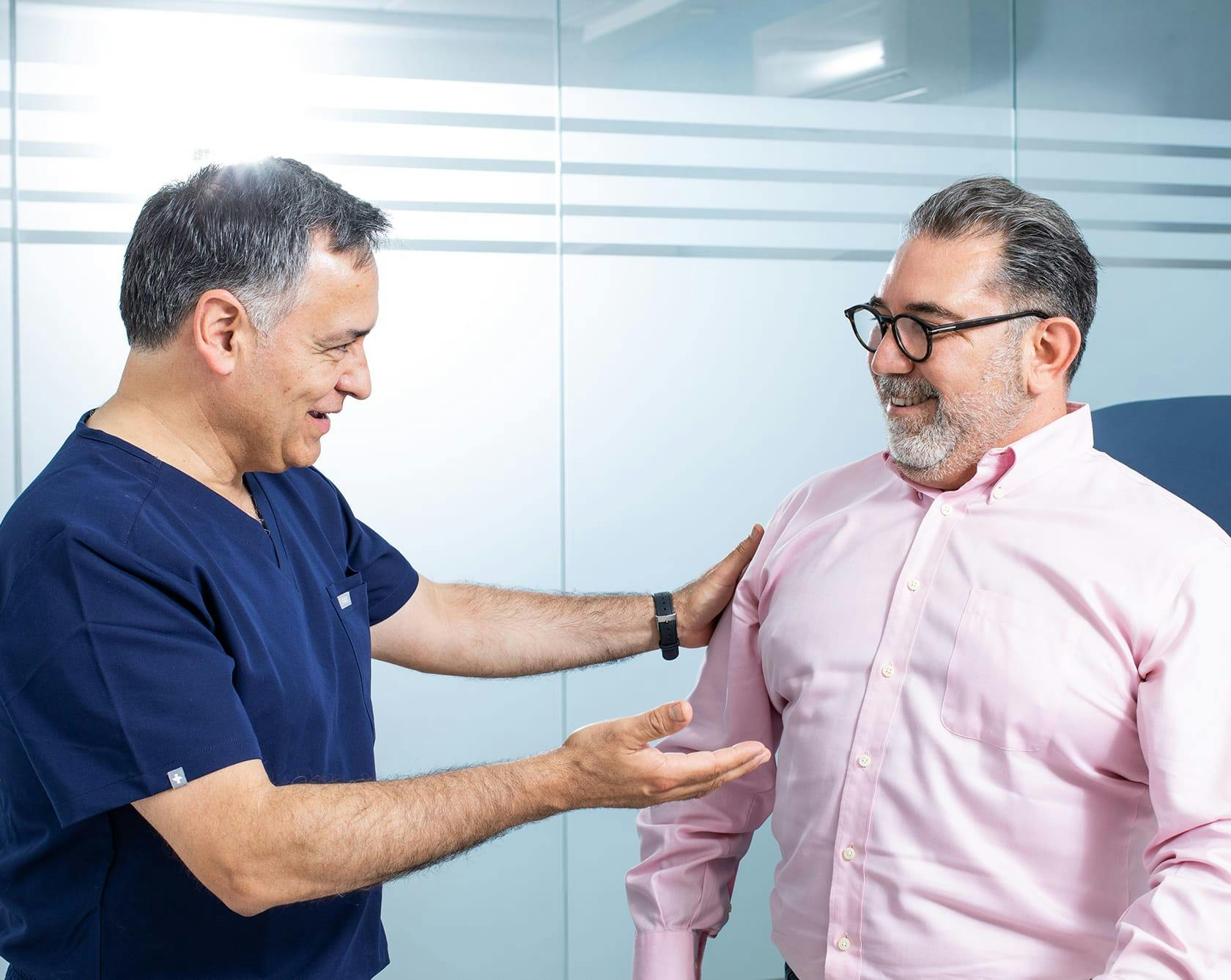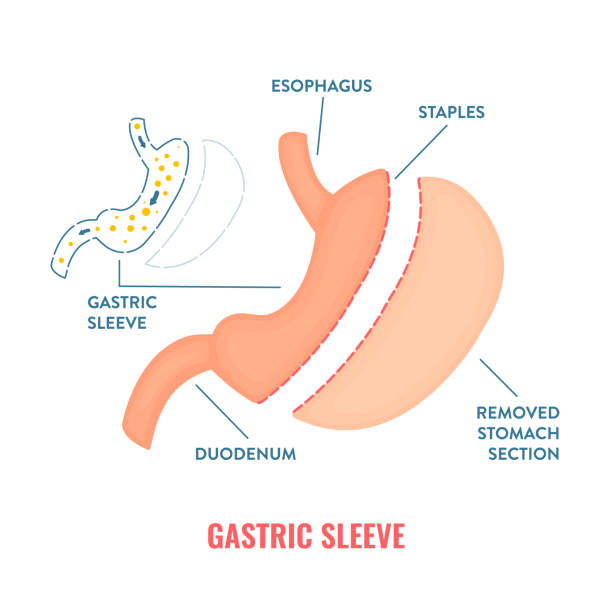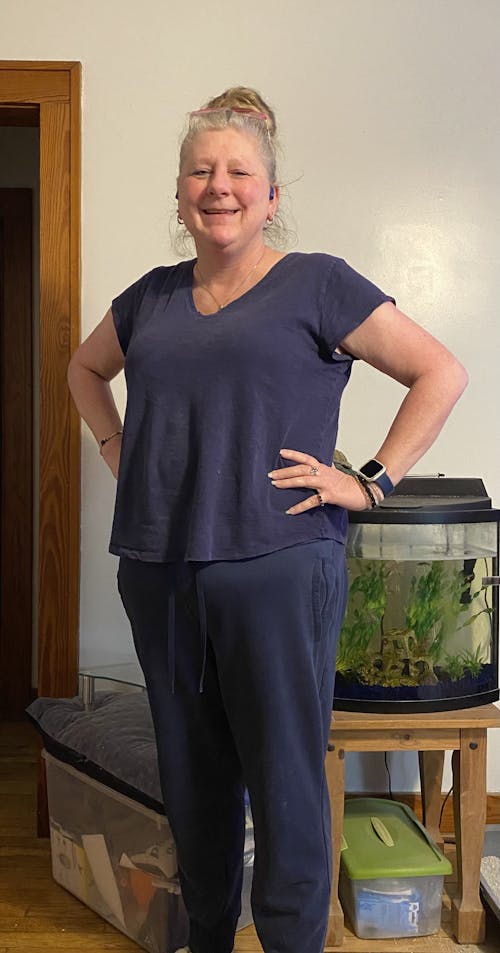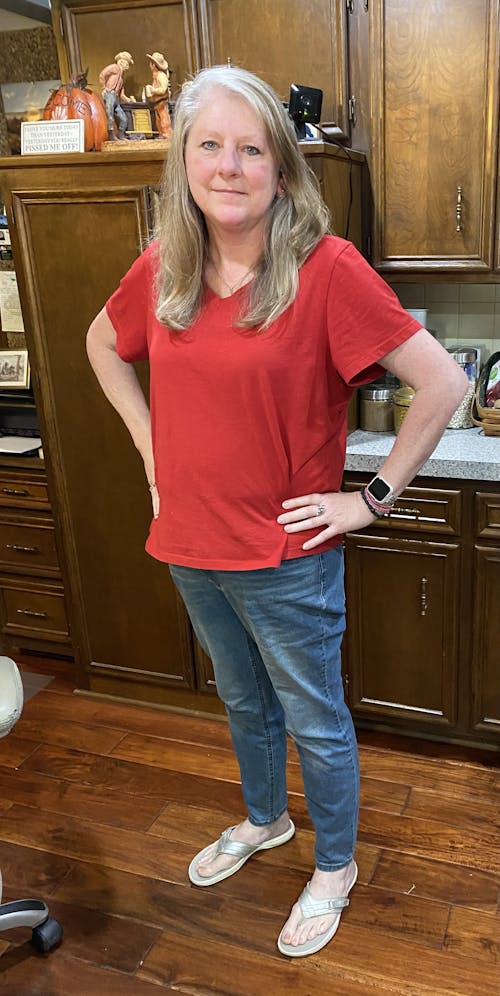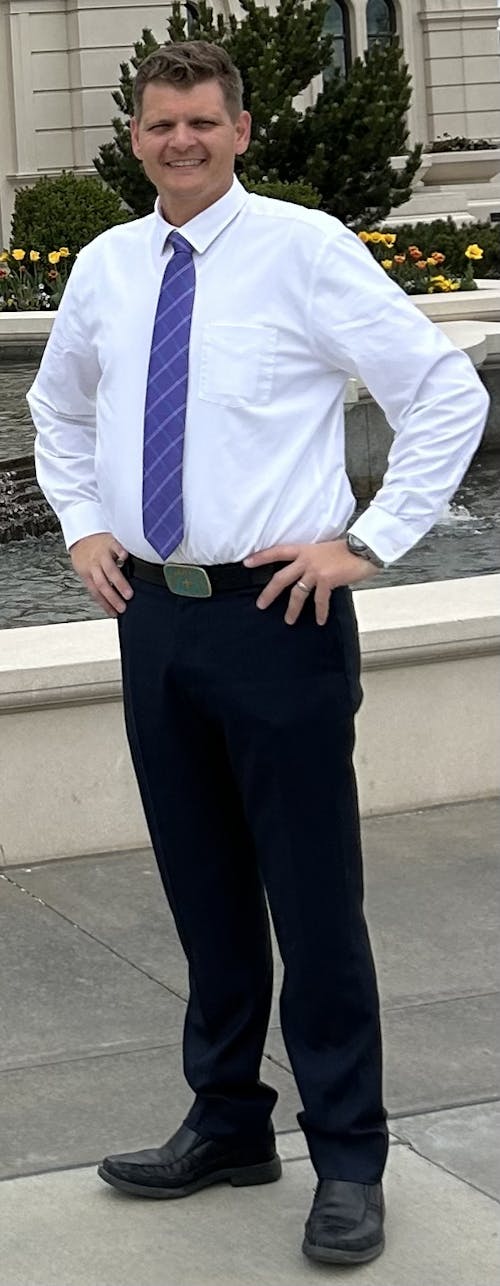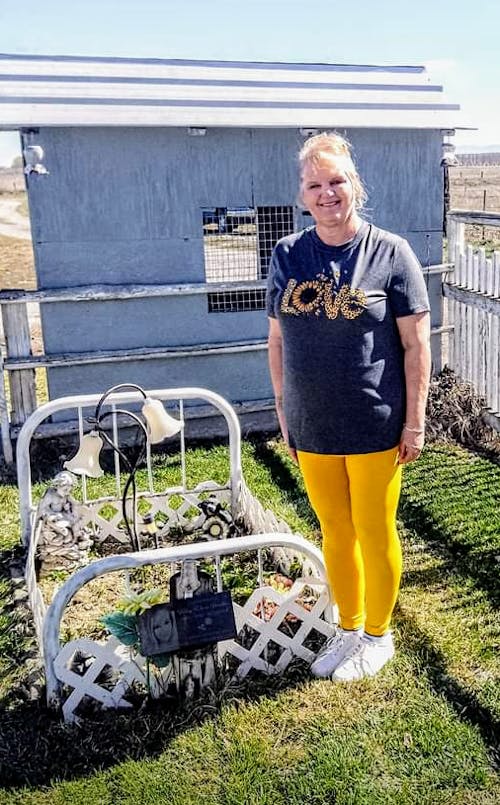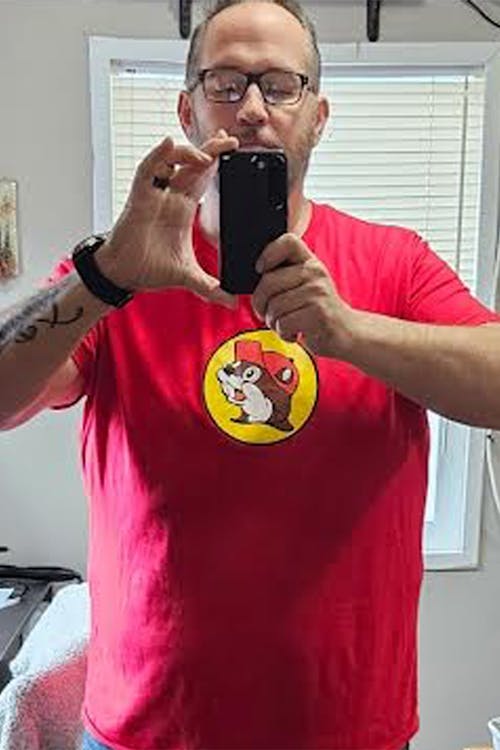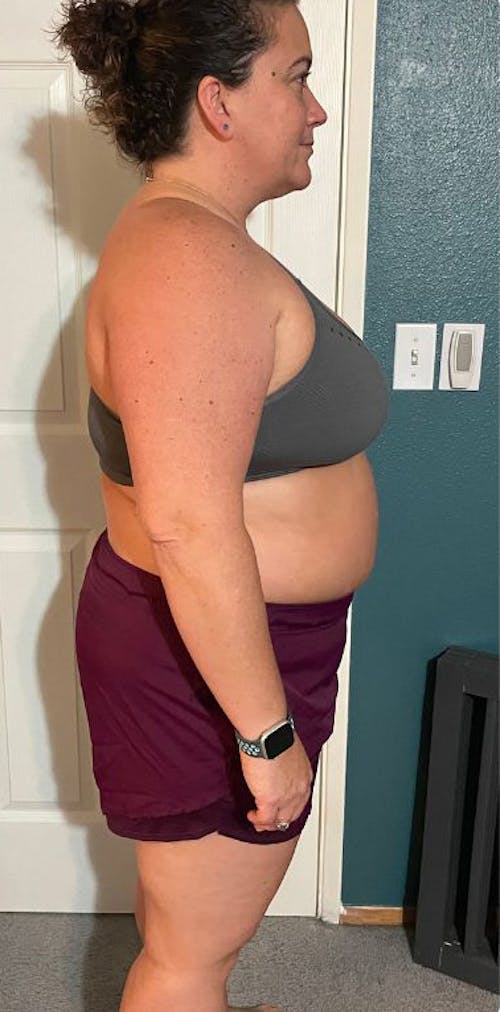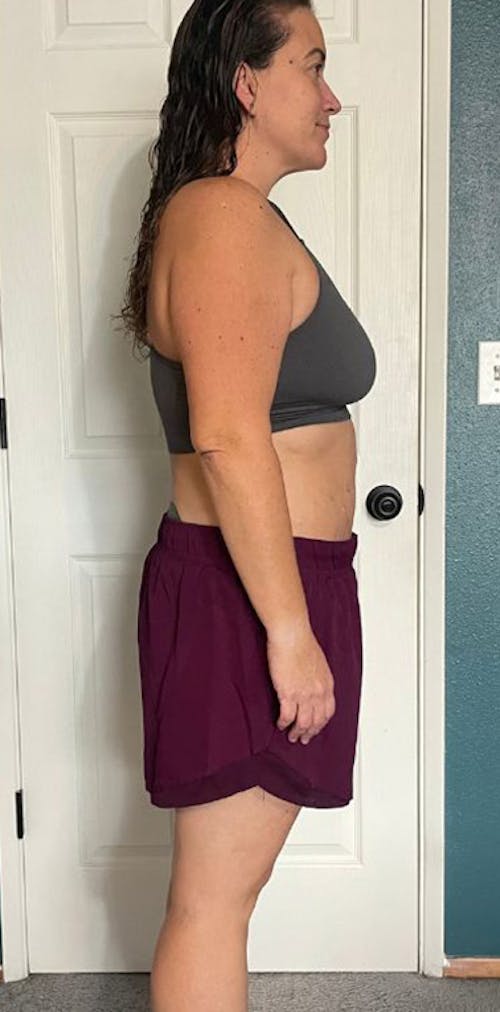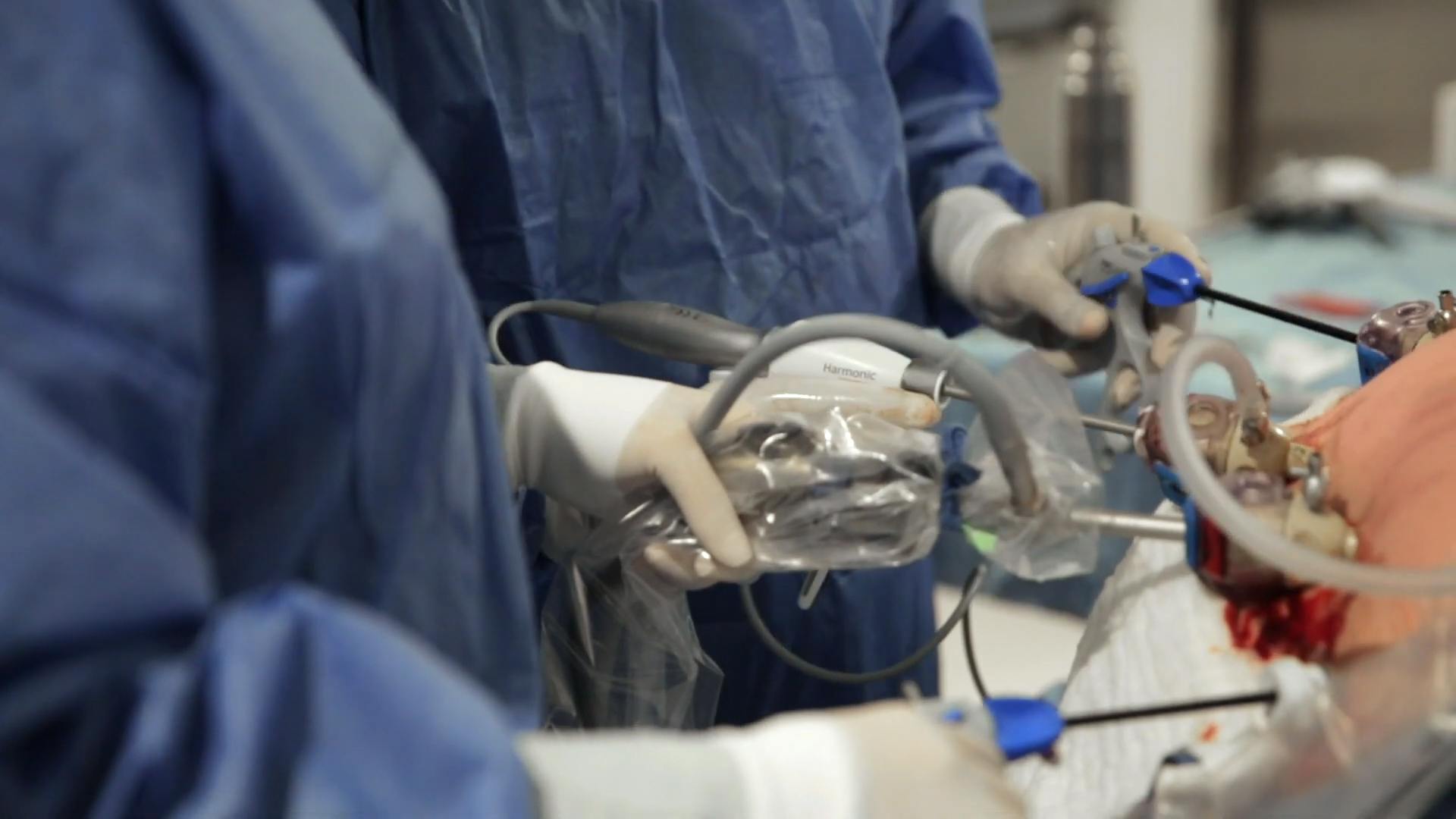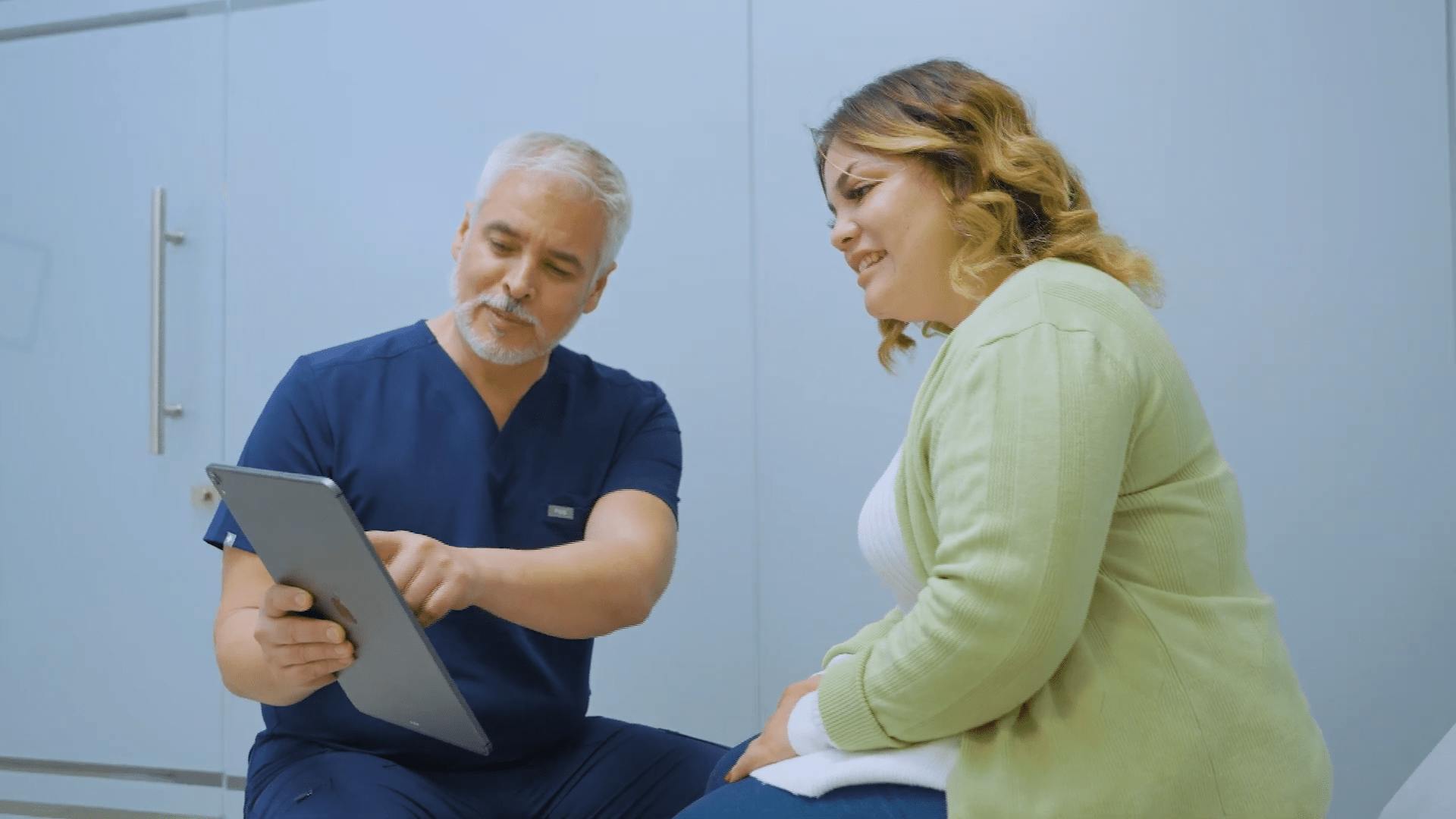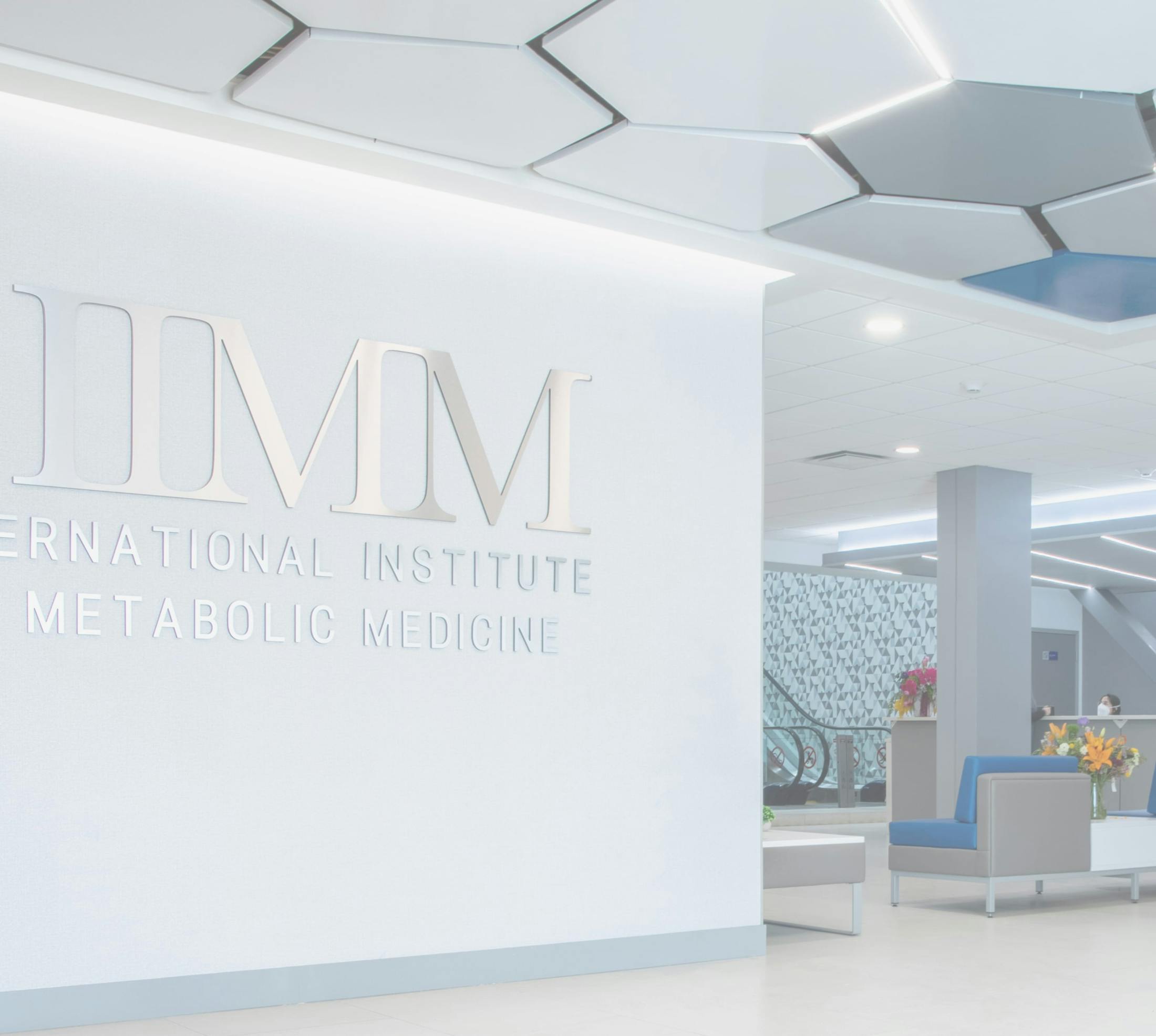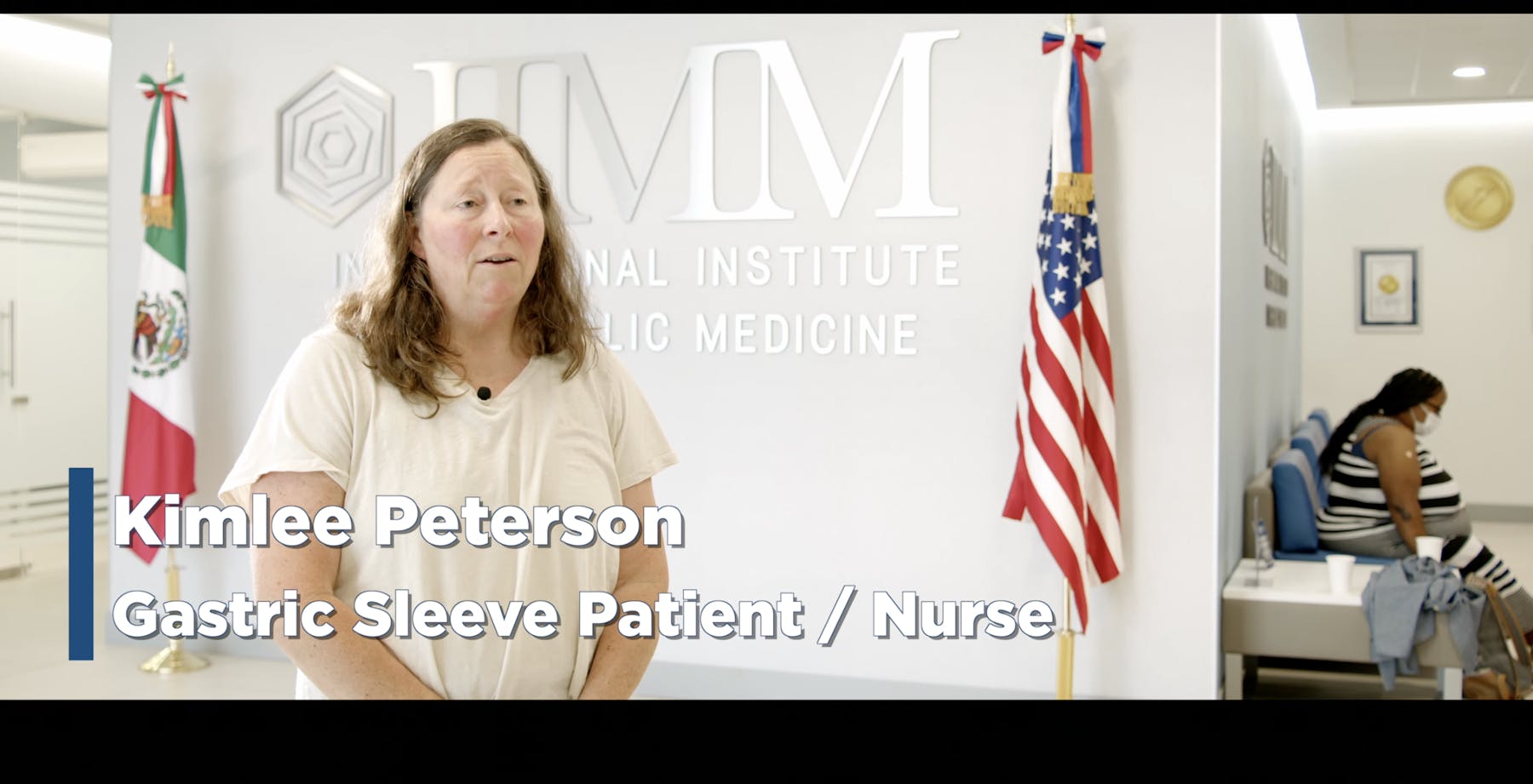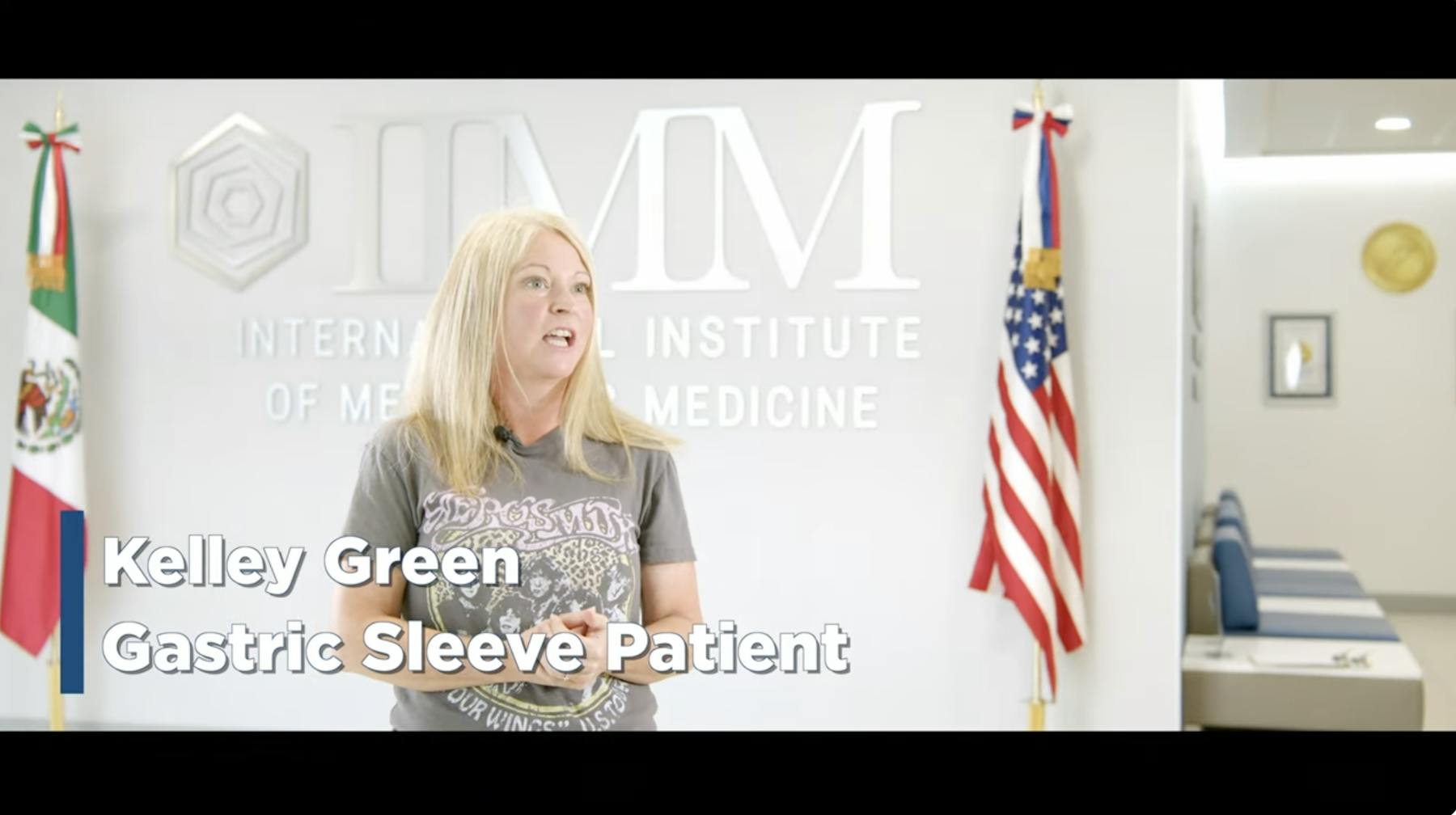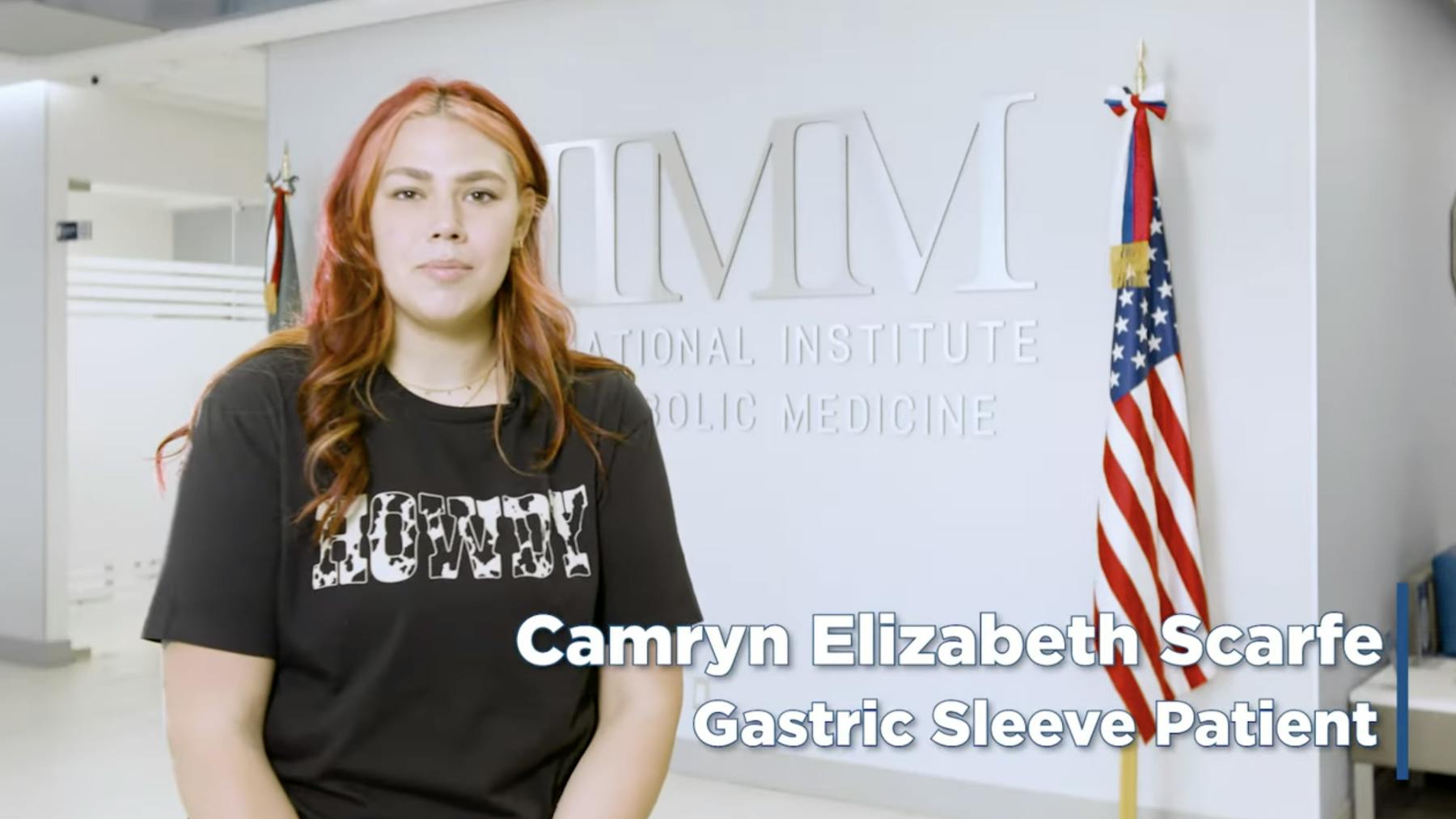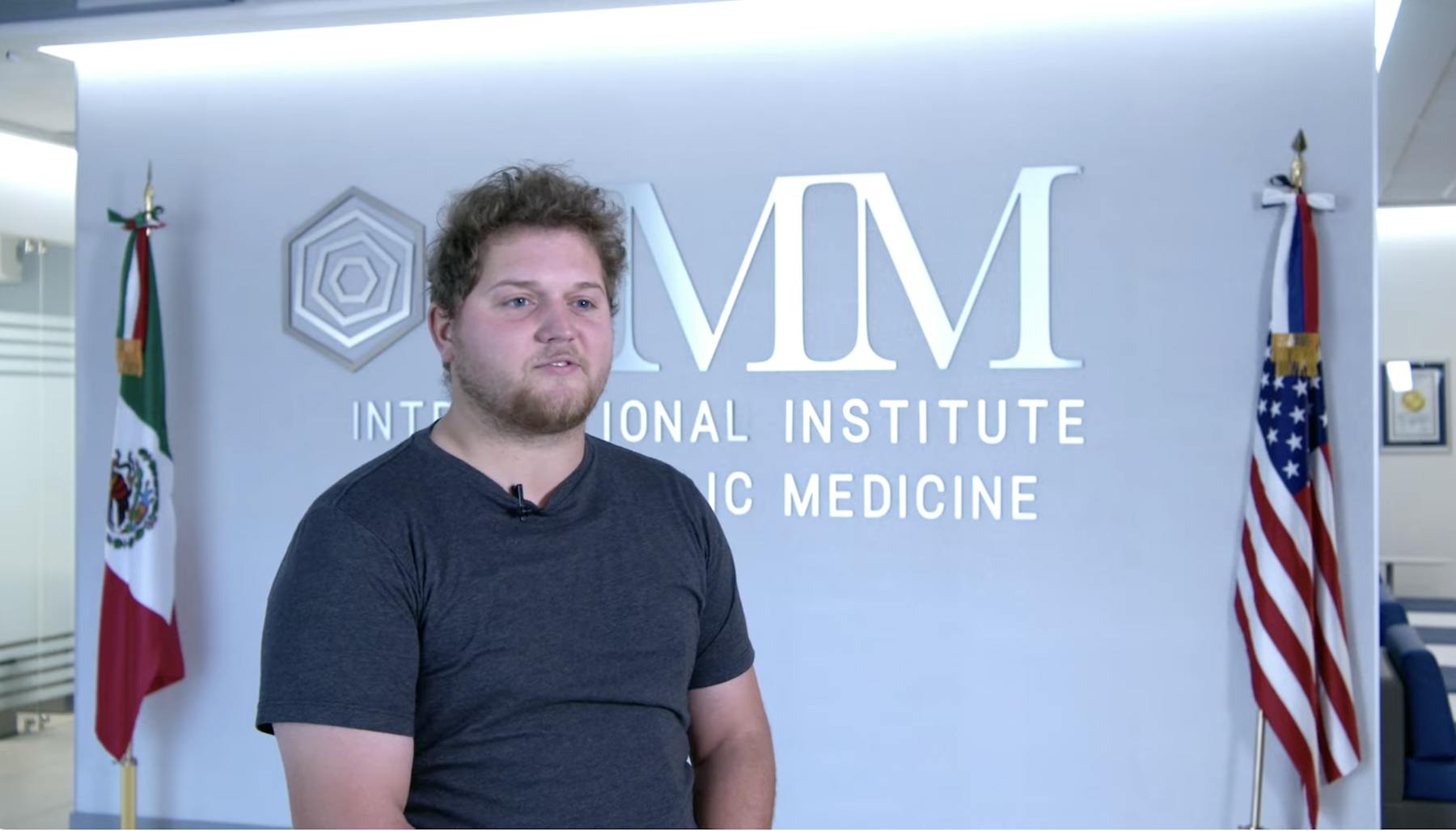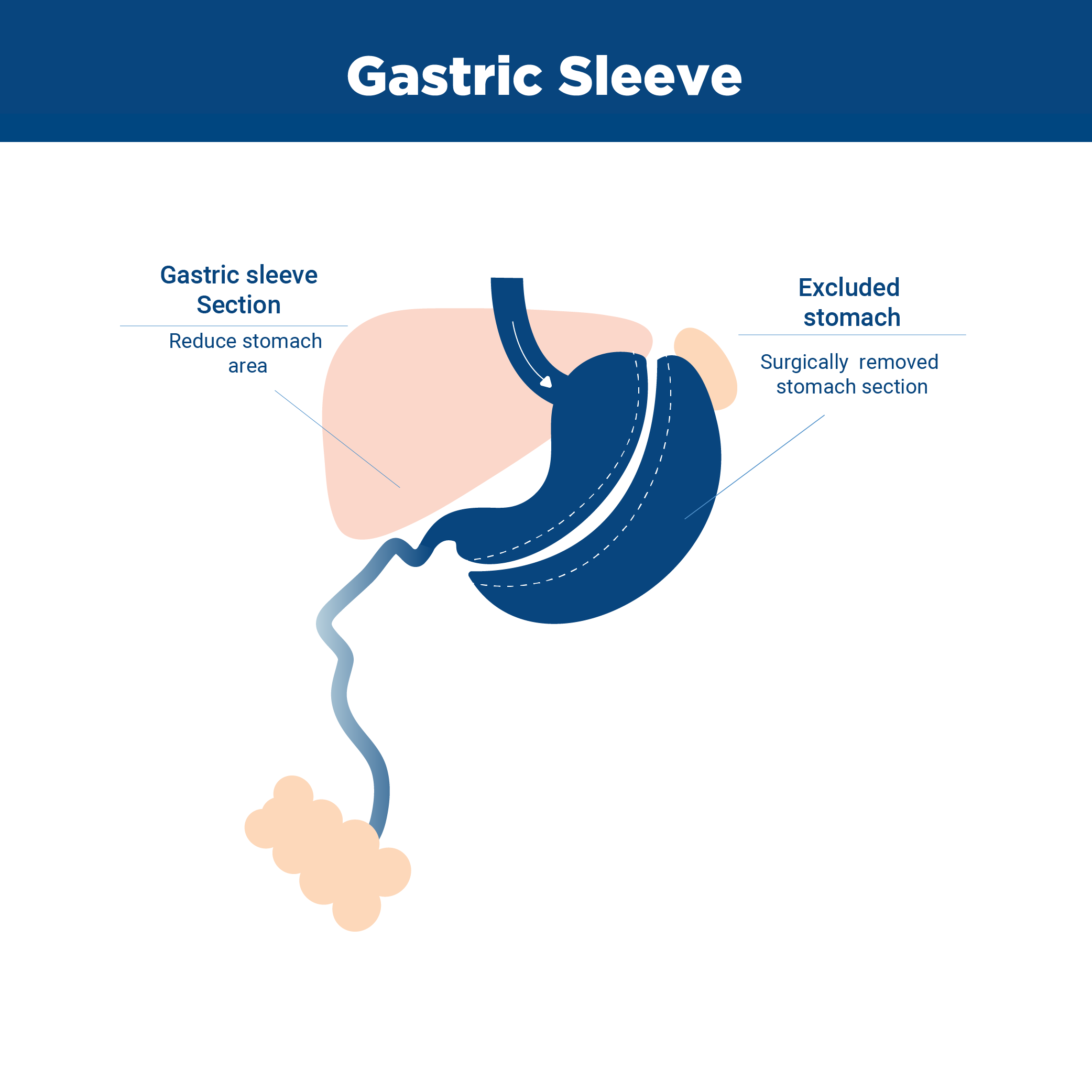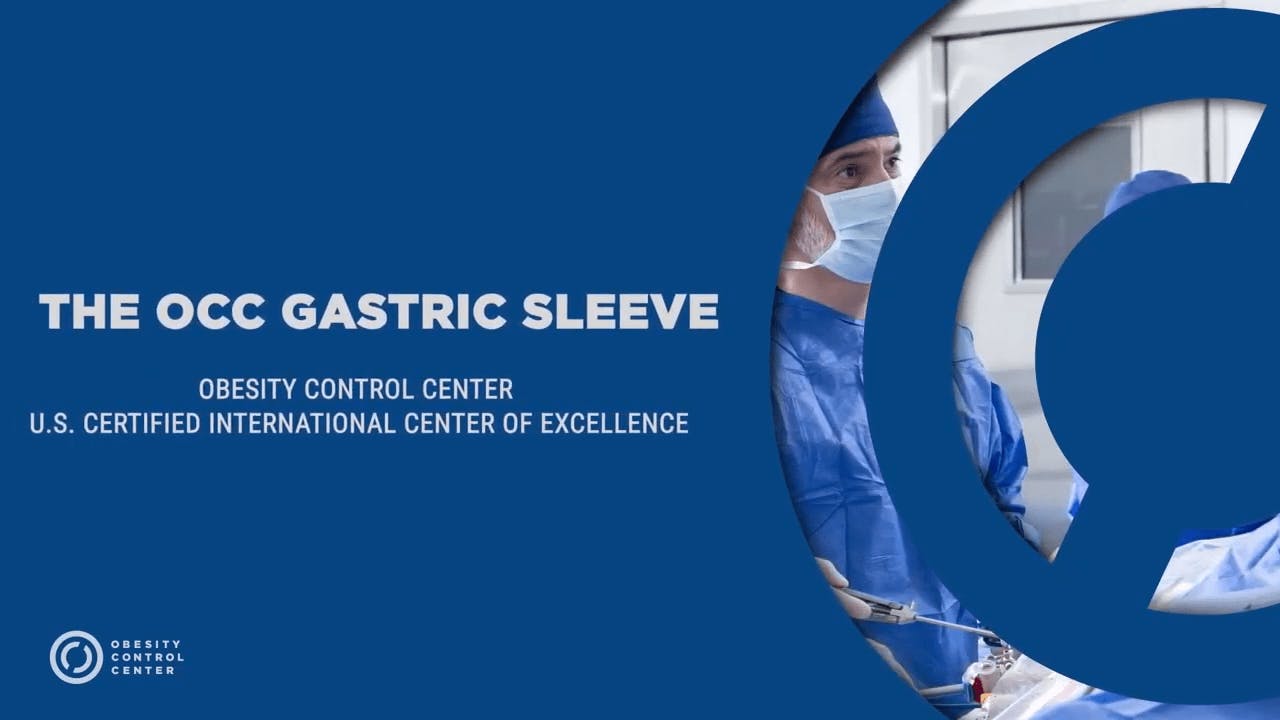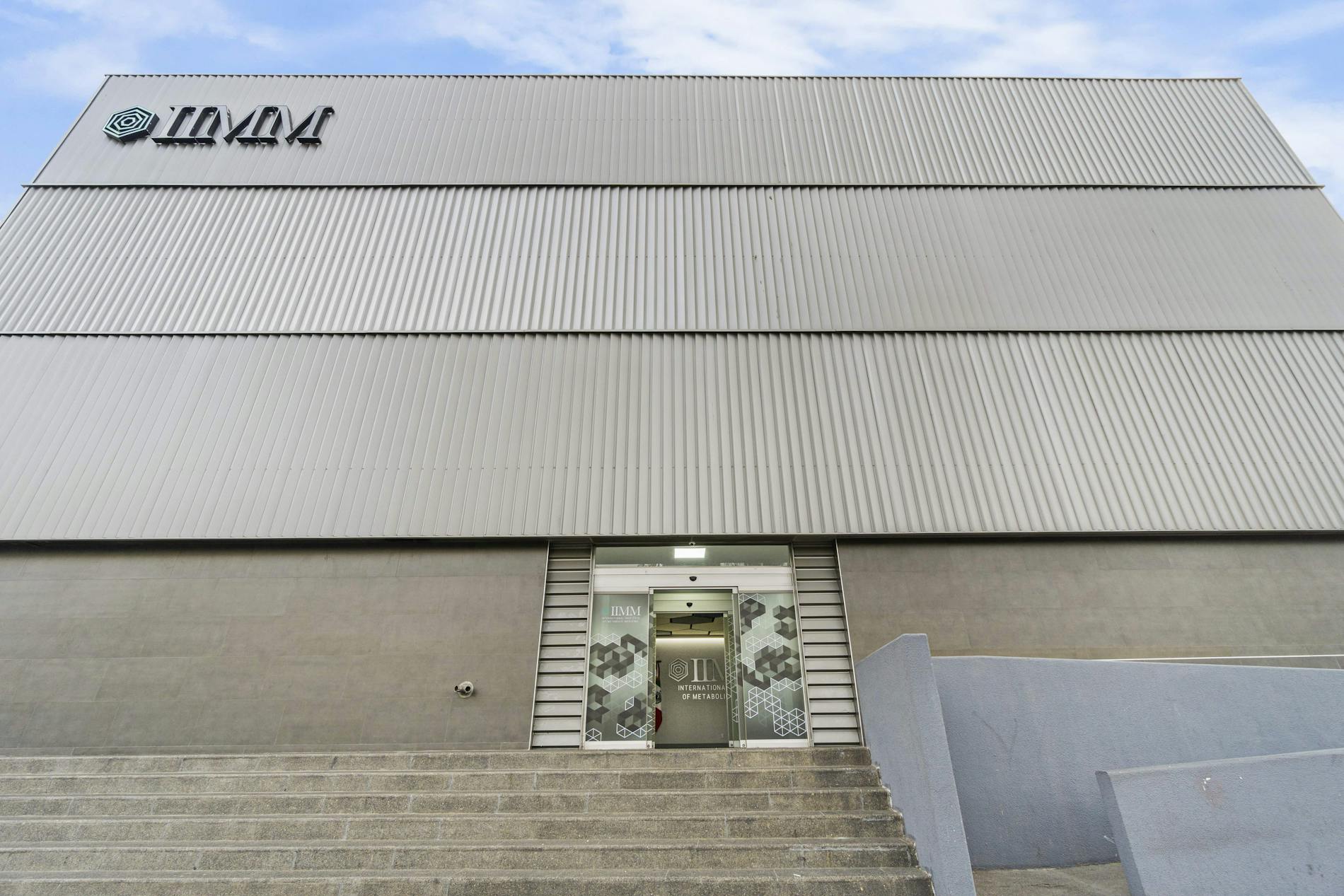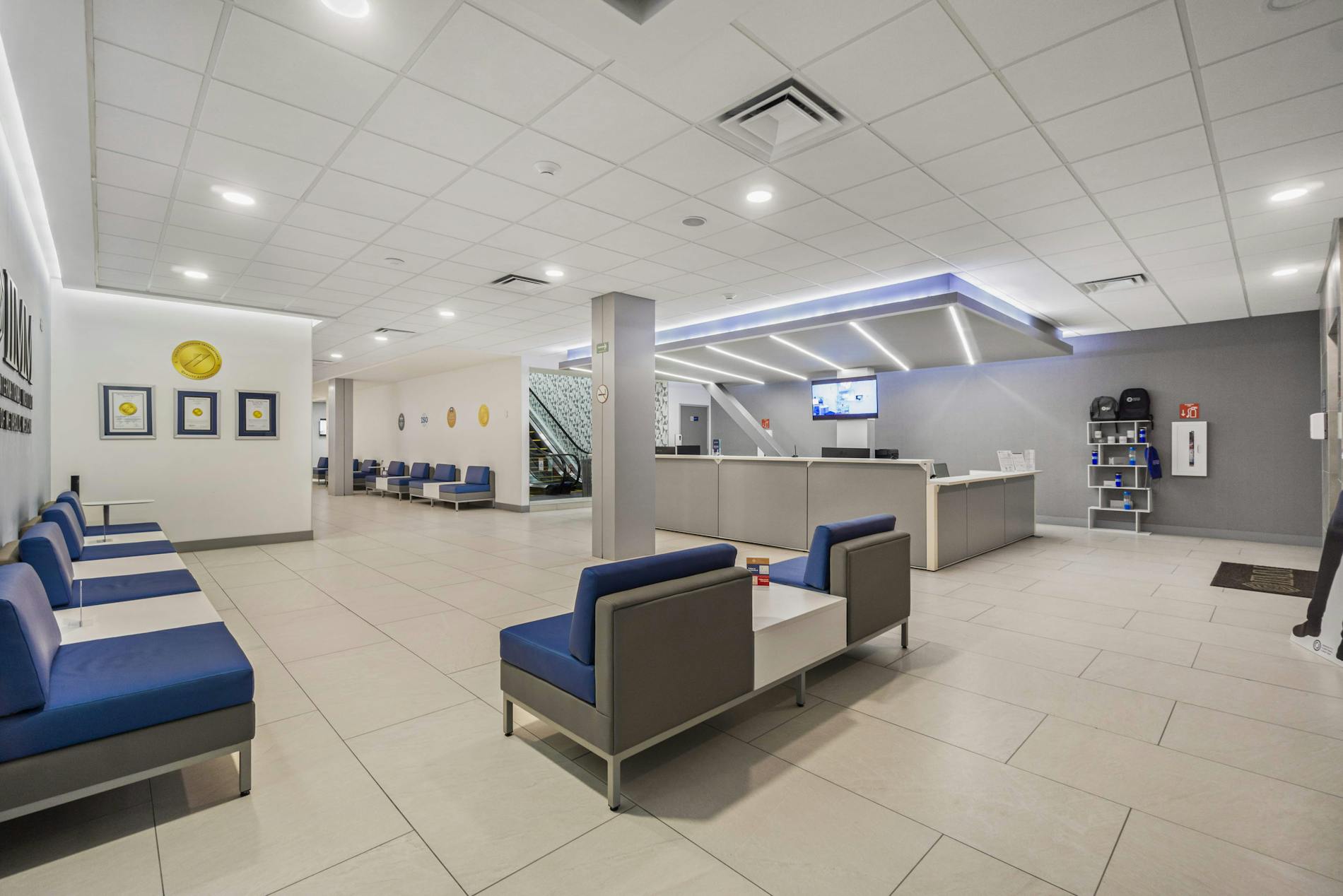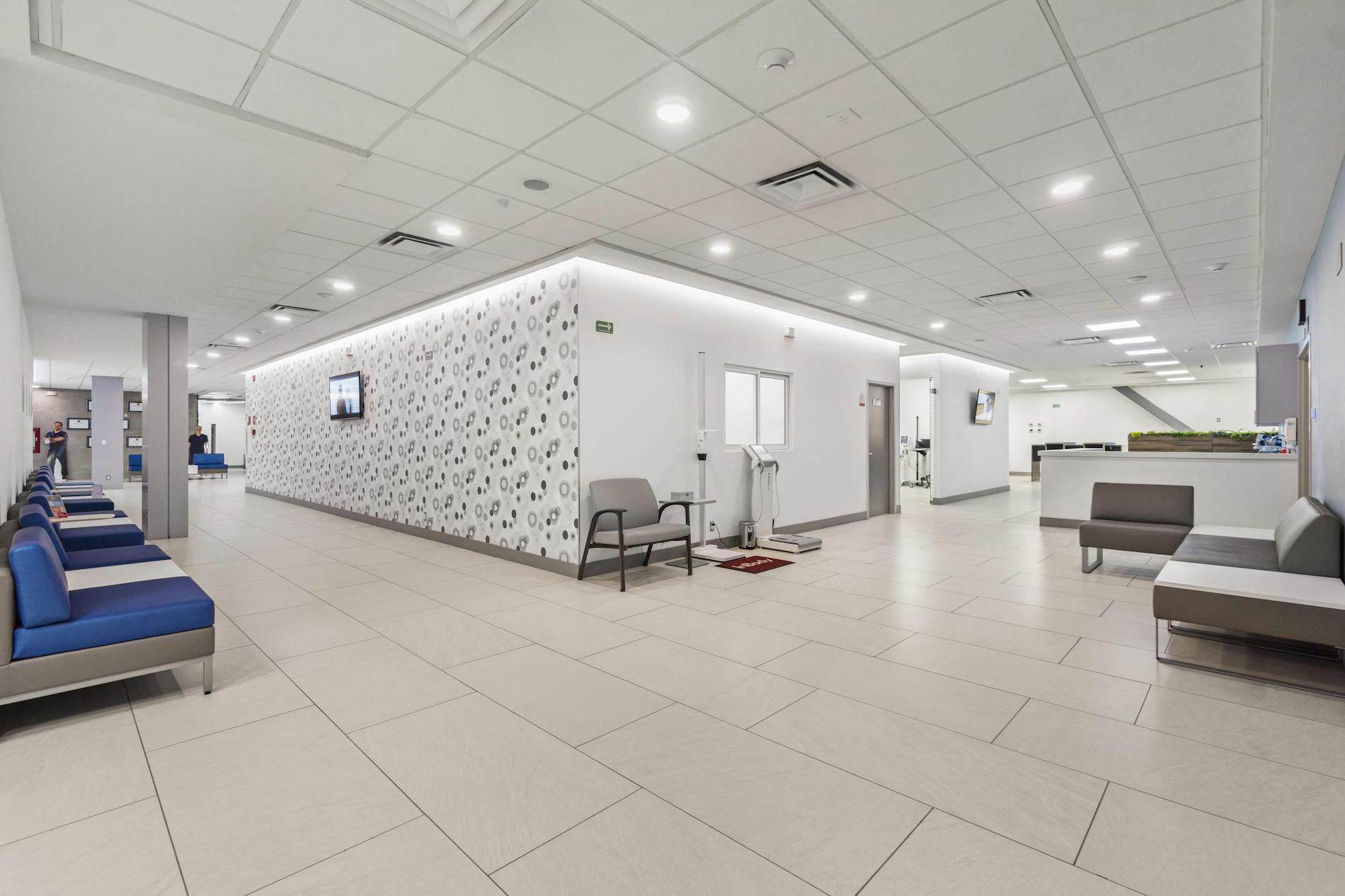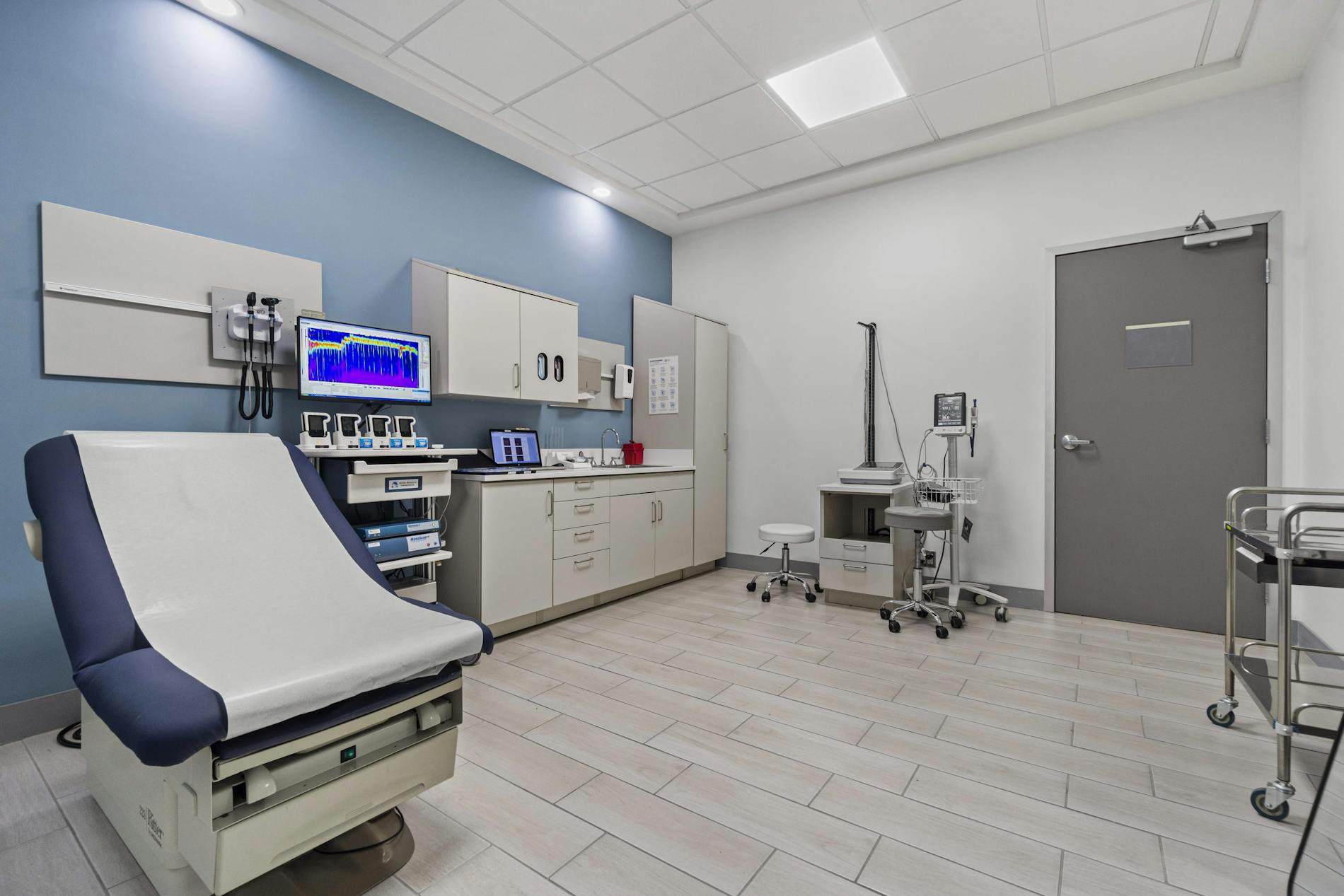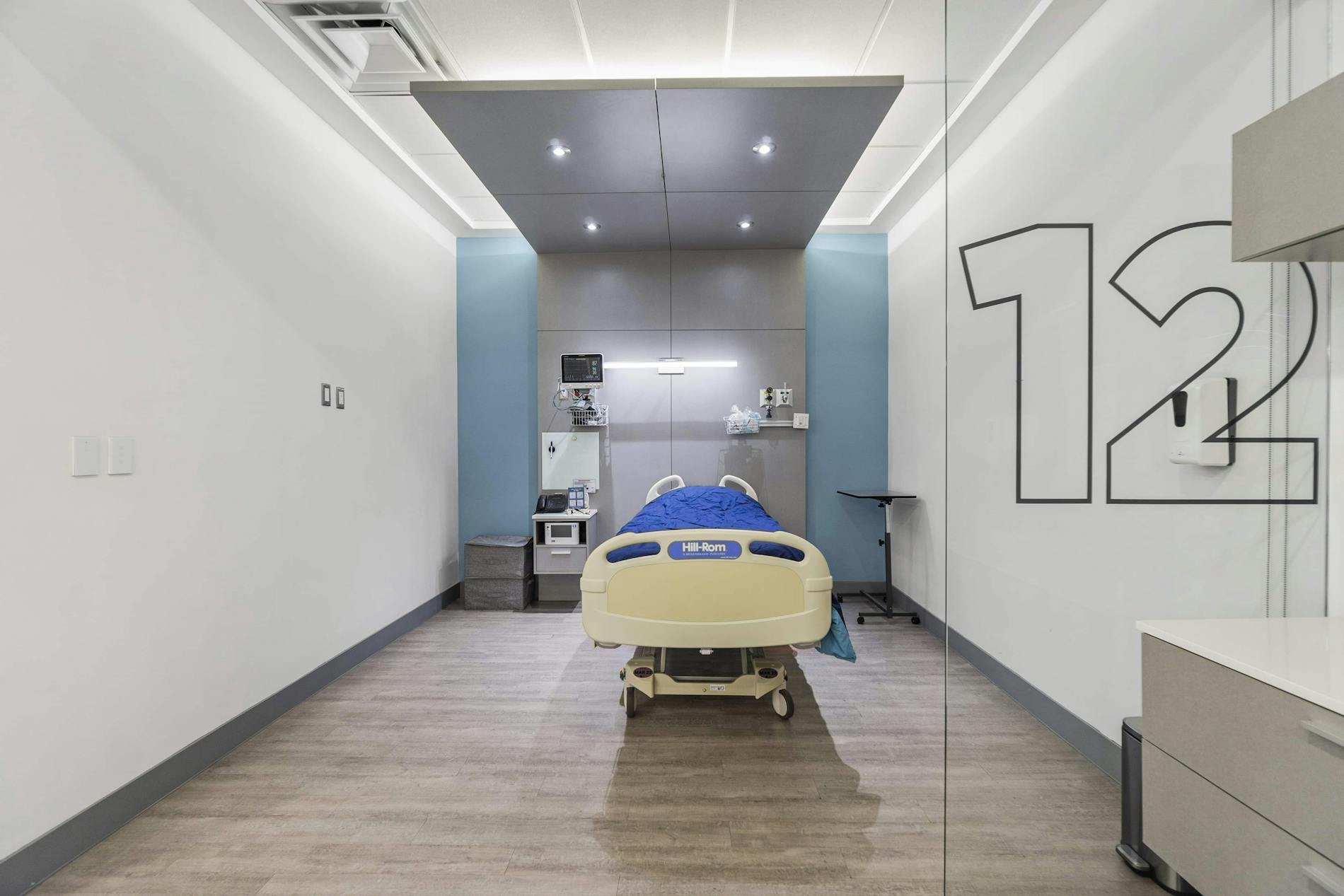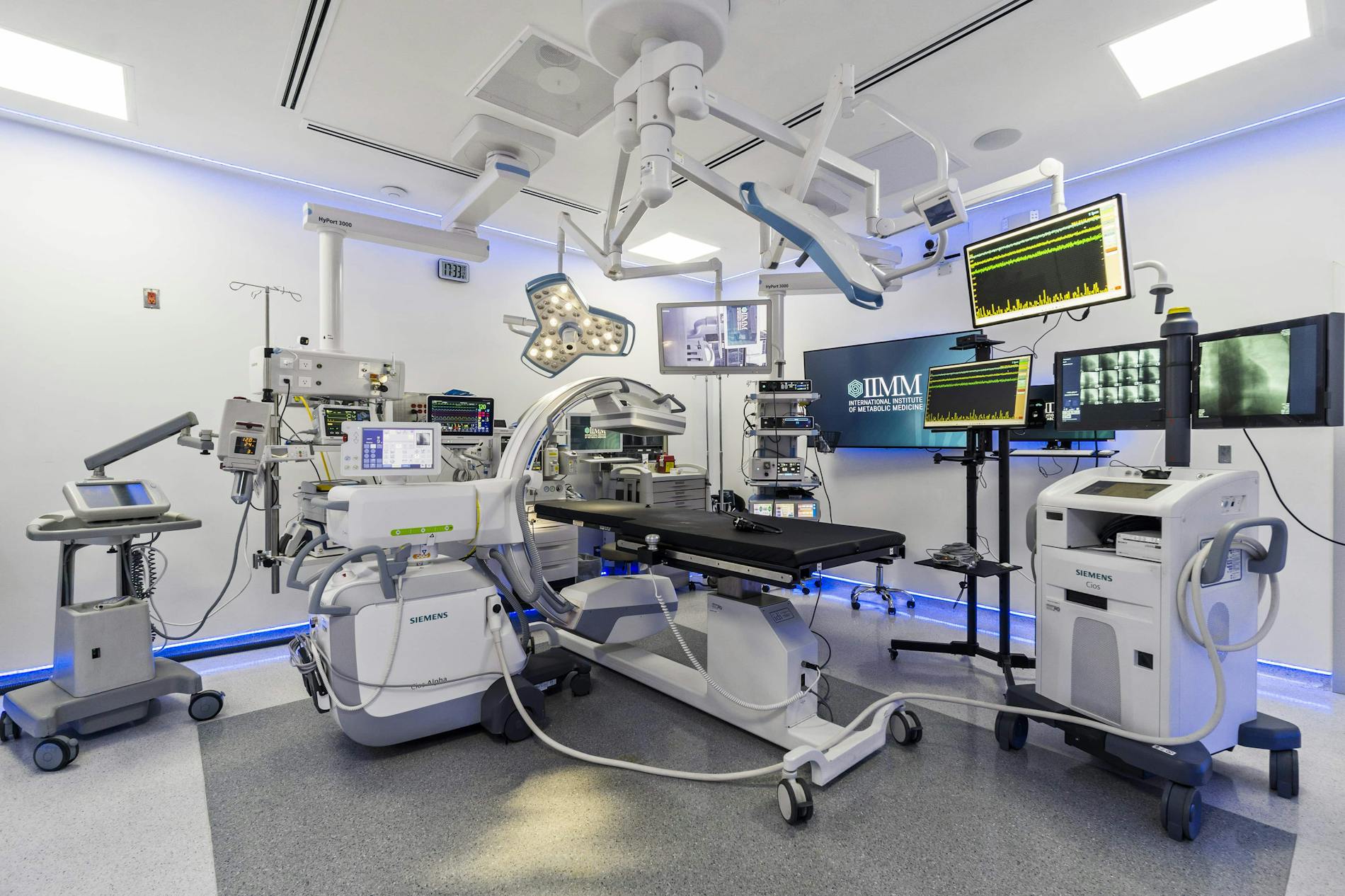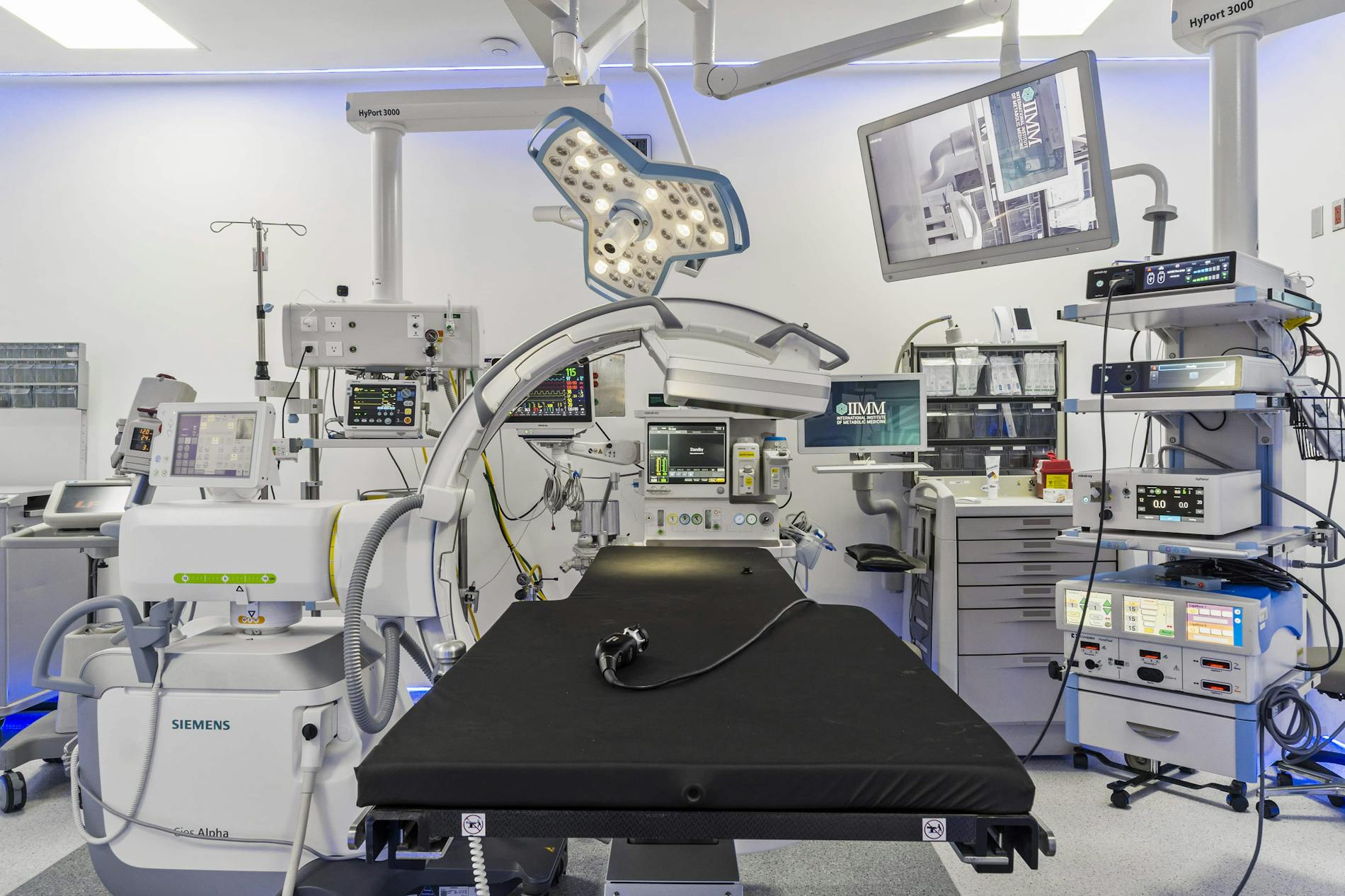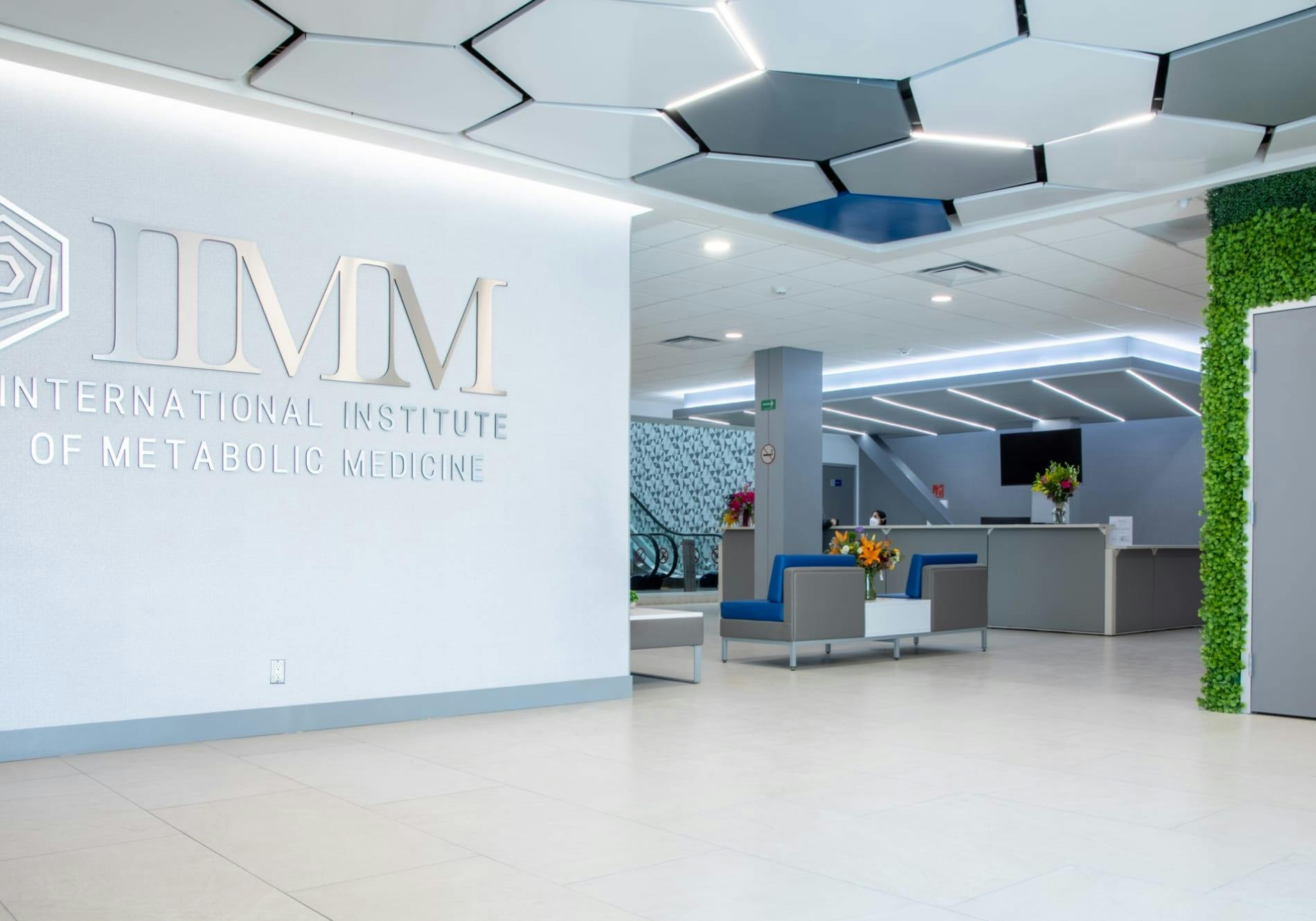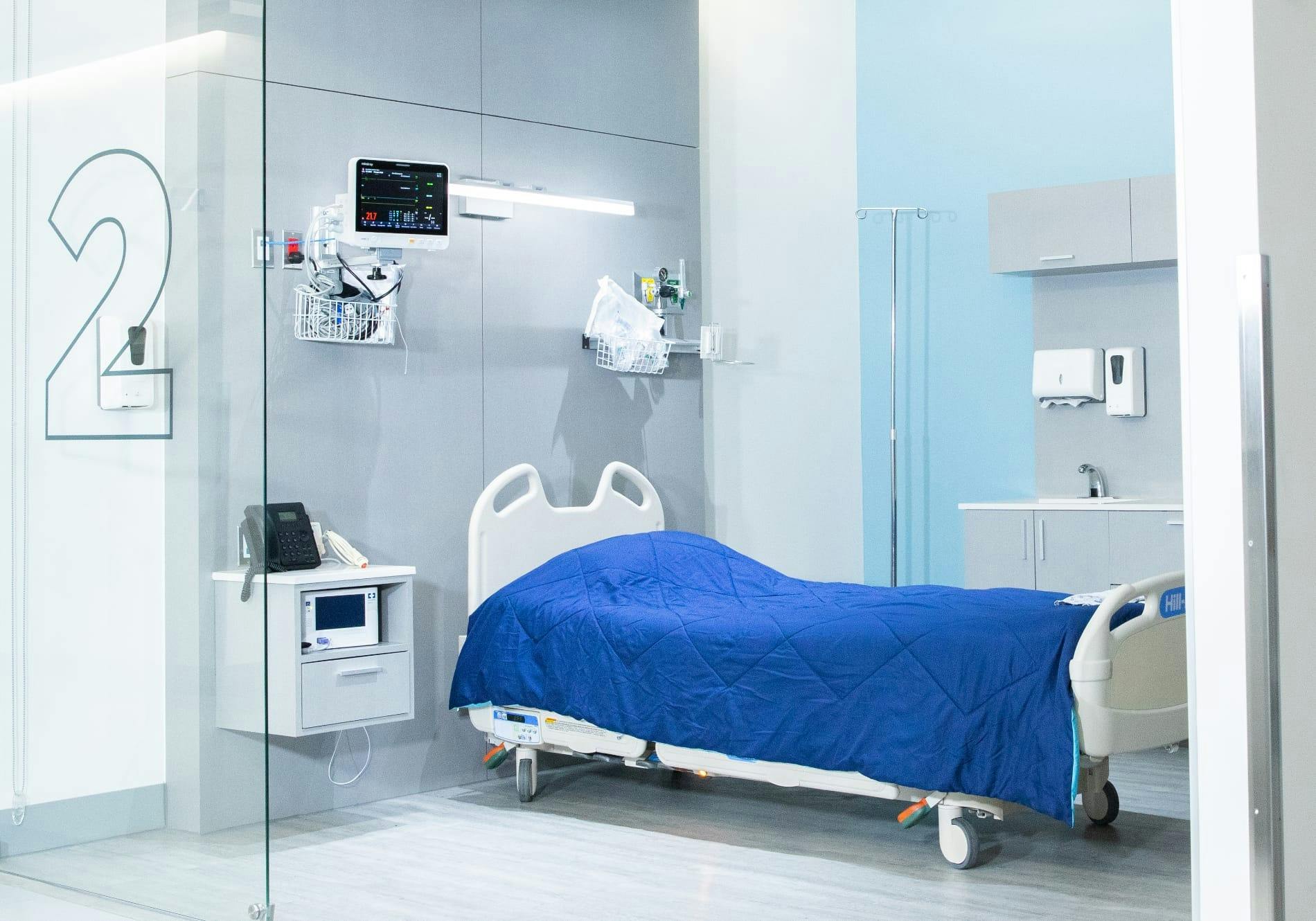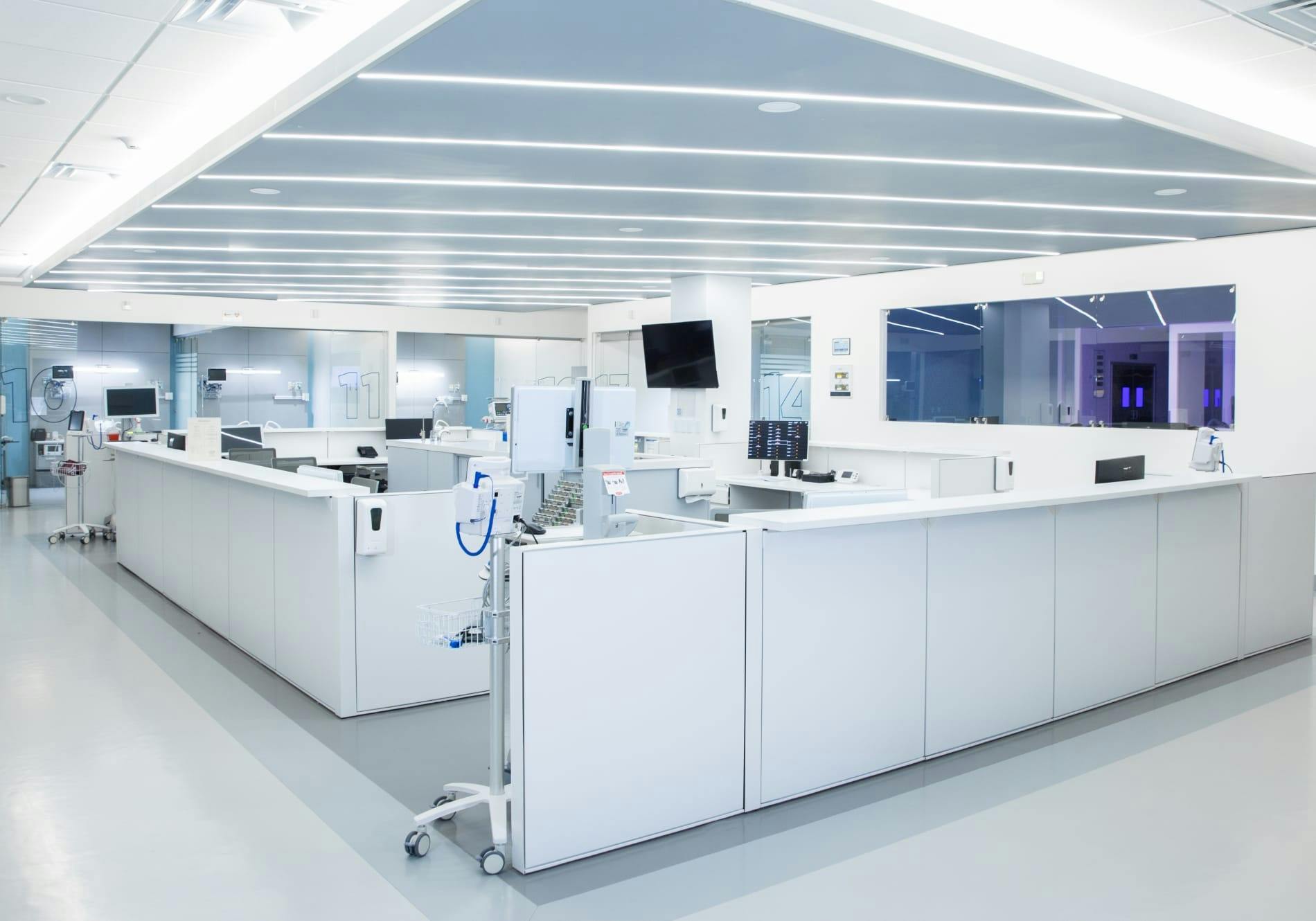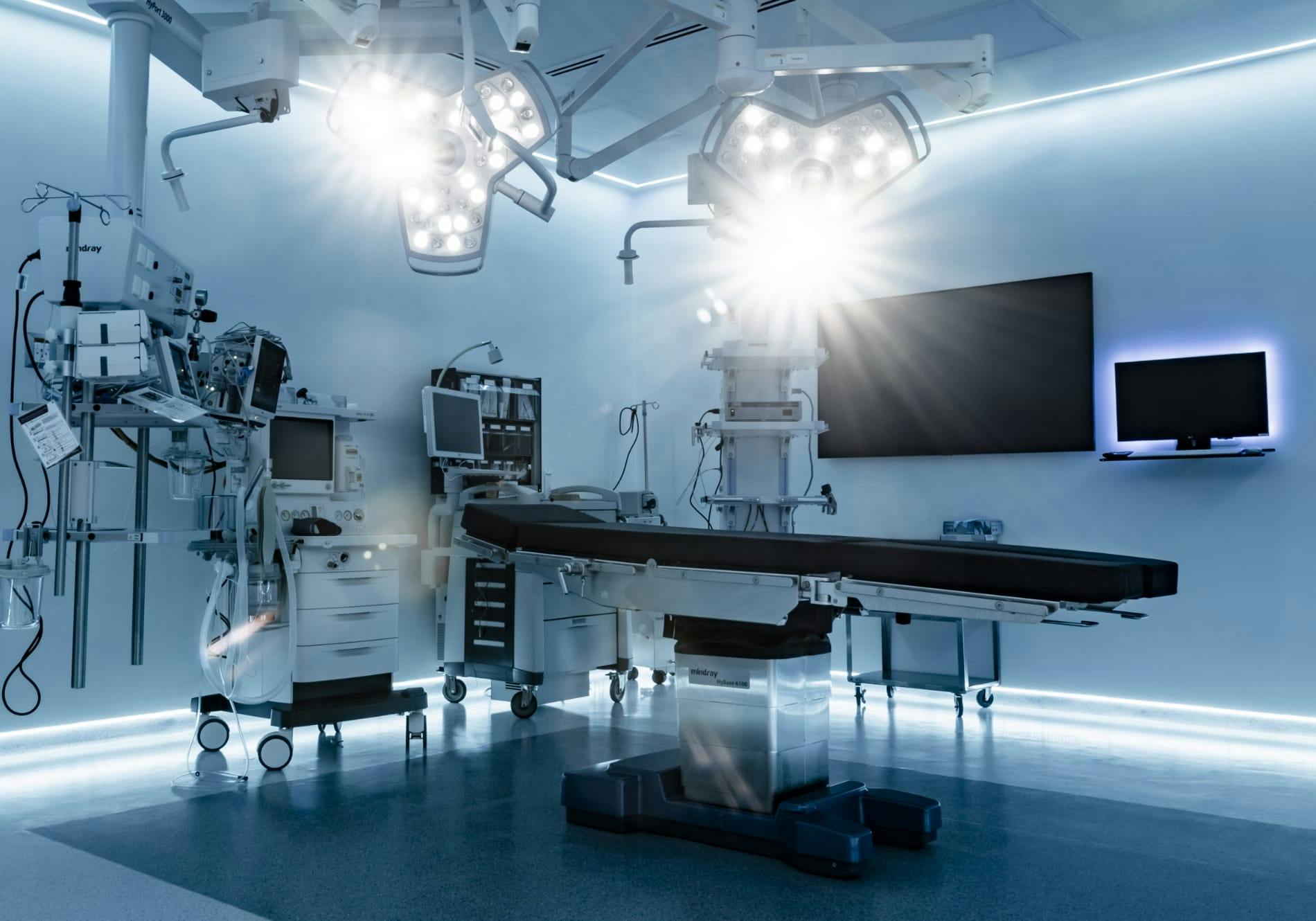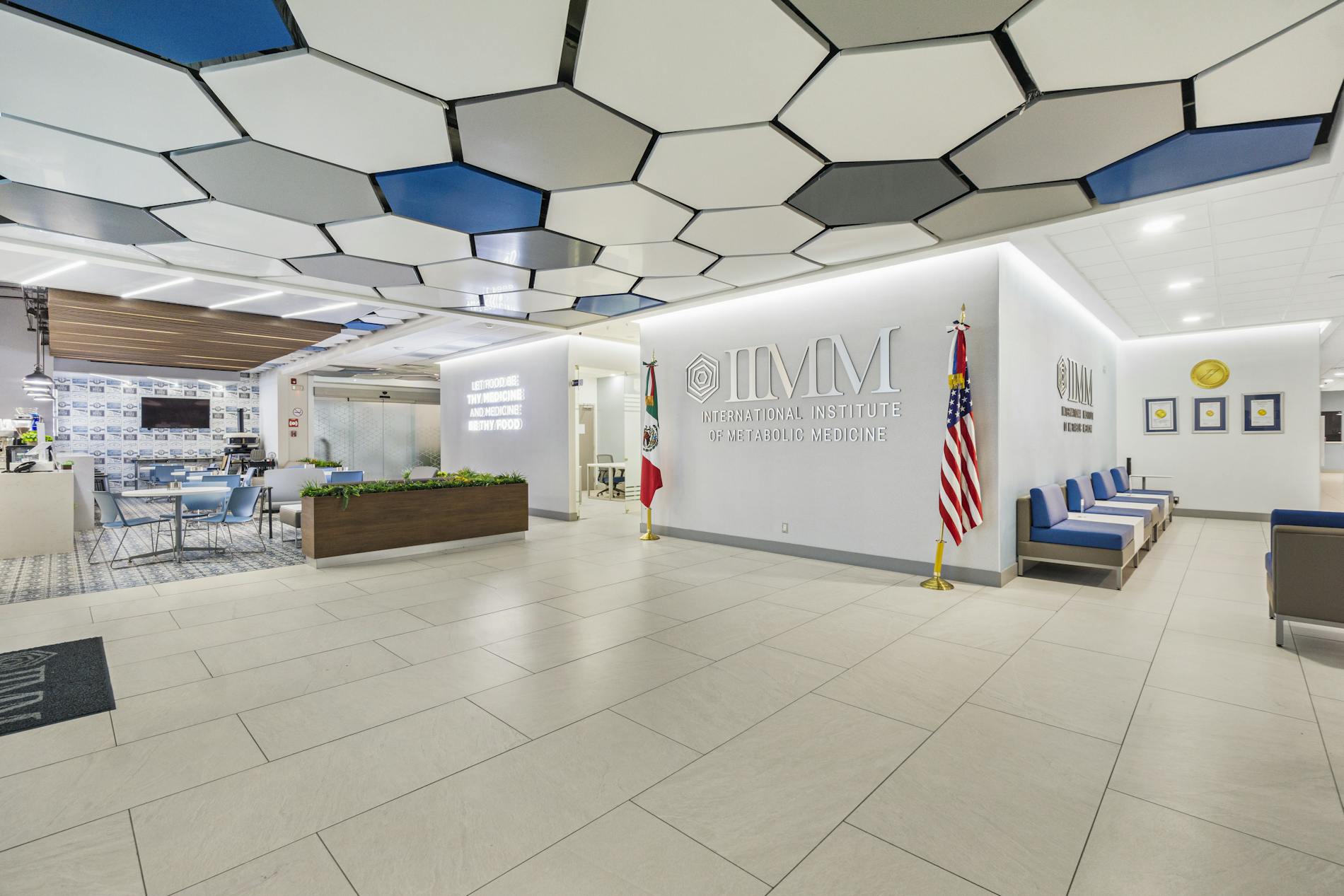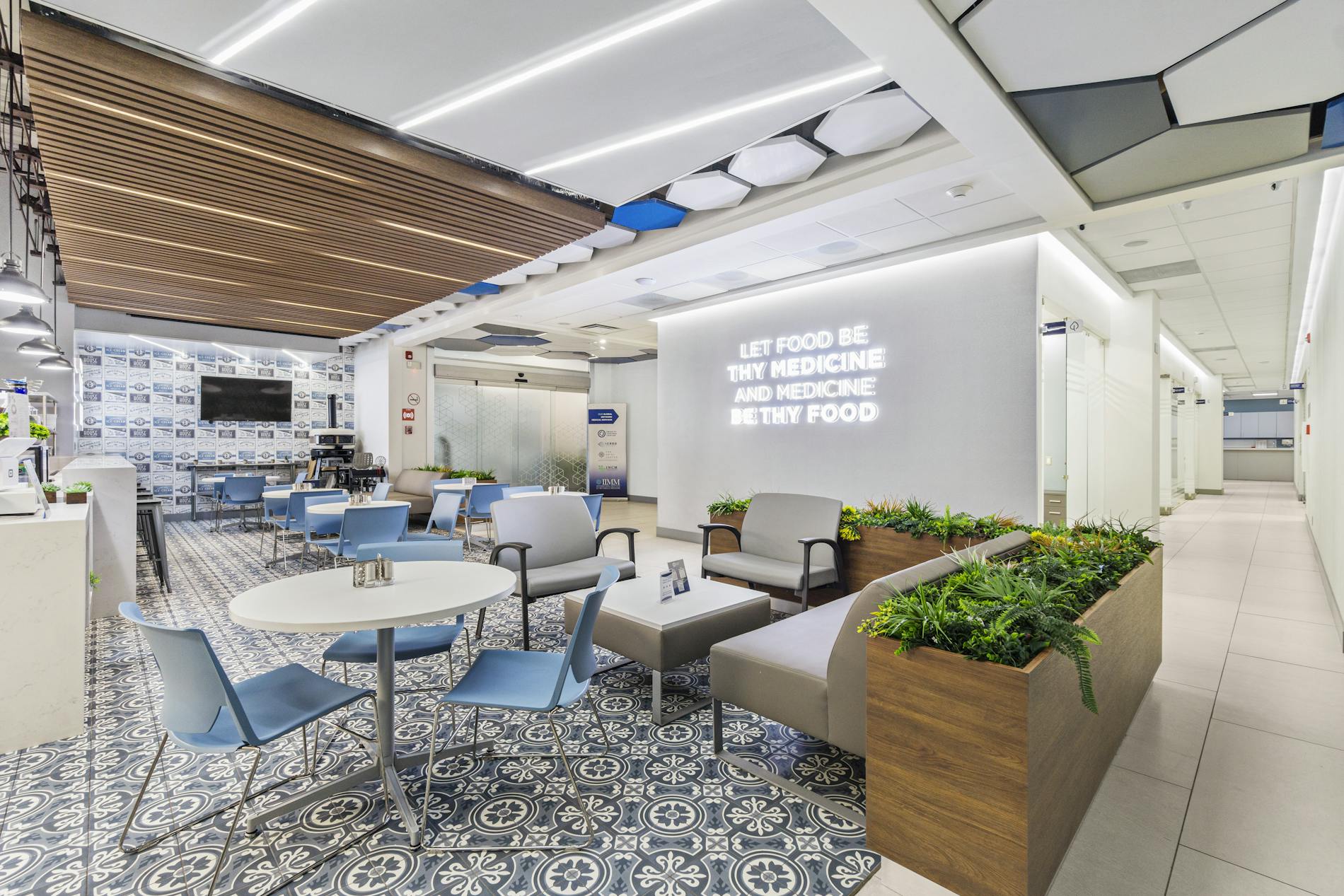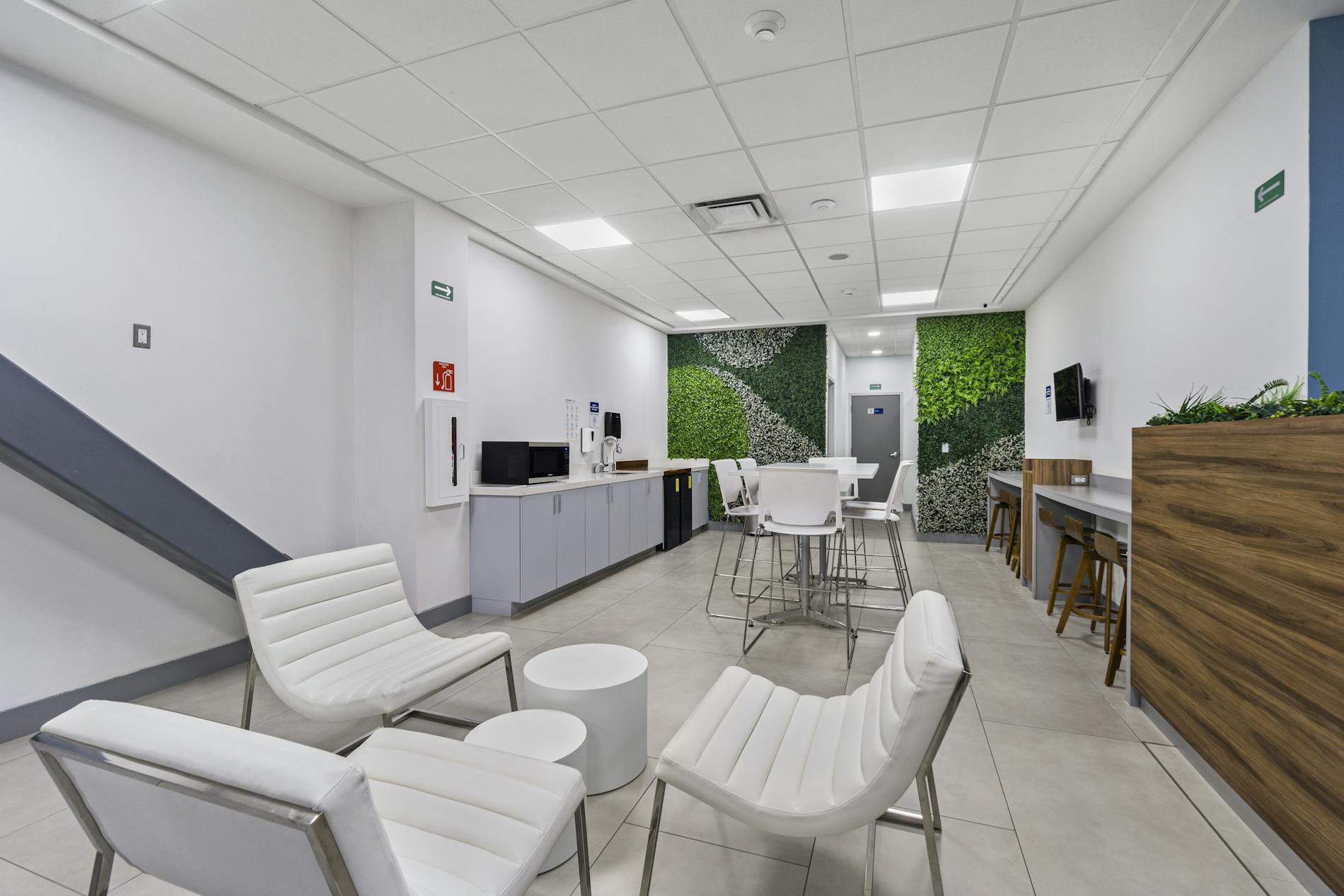Benefits of Gastric Sleeve Surgery
Our innovative approach at OCC goes beyond the traditional Gastric Sleeve. By utilizing our exclusive "Double Buttress-Over-Sewing" technique, we ensure a leak-proof seal, minimizing complications, reducing costs, accelerating weight loss, and mitigating chronic acid reflux by 64%. For those considering gastric sleeve surgery in Tijuana, Mexico, our specialized expertise is available, providing exceptional care and outcomes.
-
Cost
Starting at $4,900 -
Recovery
Patients will have lifting and activity restrictions for about about 6 weeks after surgery -
Included in Cost
Pricing covers pre-op testing, surgery, anesthesia, post-op care, transportation, medications, 5-year follow-up, and 24/7 aftercare. Airfare is not included -
Discomfort
Minimal
Before & After Gastric Sleeve Surgery
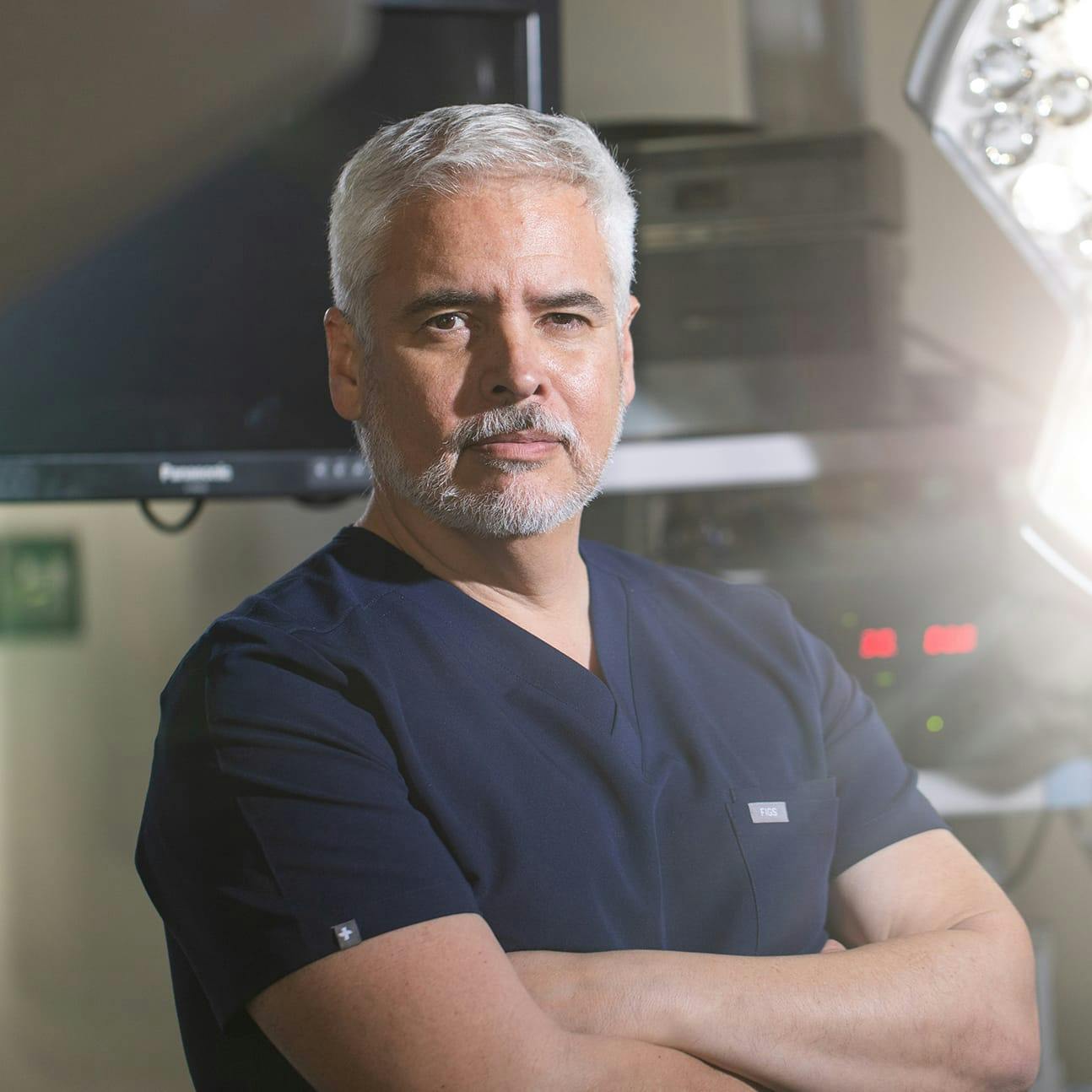
The Only Joint Commission Accredited International “Center of Excellence”
We have the highest-rated safety protocols and patient safety standards that exceed most American hospitals. We are certified by the Joint Commission and are a certified International Center for Excellence.
Very few international hospitals achieve this status, and many American hospitals do not. Our safety record is one of the best in recorded literature. 30, 31, 32, 42, 43

What is the IGS Improved Gastric Sleeve®?
The IGS Improved Gastric Sleeve® is a groundbreaking weight loss surgery technique exclusive to OCC.
Our over 20 years of experience and more than 26,000 patients give us a unique advantage in innovations and patient safety. Dr. Ortiz developed this unique gastric sleeve surgery for exclusive use at Obesity Control Center, and our team of expert surgeons use this technique at our weight loss surgery center in Mexico. This state-of-the-art gastric sleeve surgery is the result of years of experience and research in weight loss surgery revision surgeries.59, 60
Book Your Personalized Consultation with One of Our Top Bariatric Surgeons
Gastric Sleeve Surgery Patient Testimonials at Obesity Control Center in Tijuana, Mexico
How can I kickstart my weight loss before gastric sleeve surgery?
By restricting the amount you eat, you can kickstart the primary issue most patients have with weight loss – the overconsumption of calories.
Schedule a Consultation Today
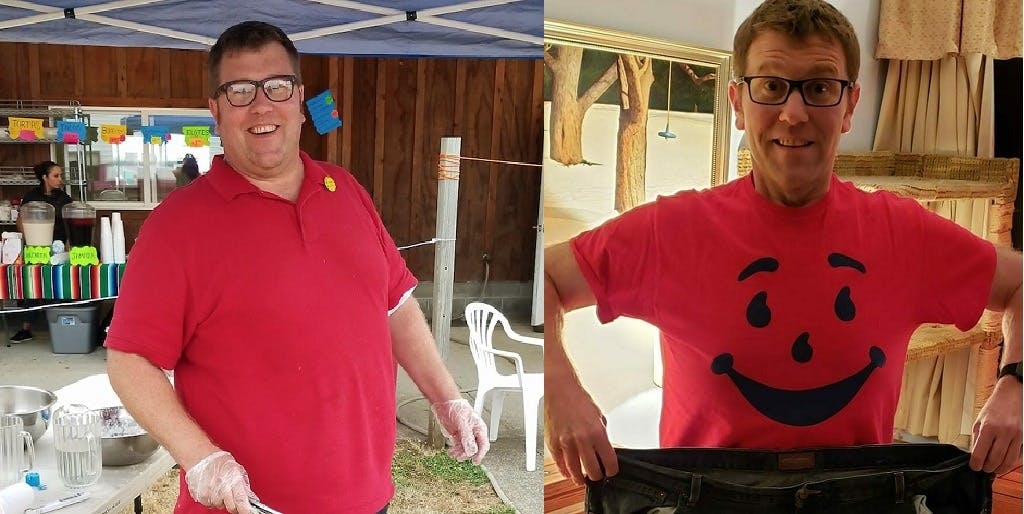
IGS Improved Gastric Sleeve® vs. regular gastric sleeve surgery
We created the IGS Improved Gastric Sleeve® to correct a set of known issues of the traditional gastric sleeve, such as its 30% failure rate and the tendency to lead to uncomfortable acid reflux. The improvements include:
- Higher safety standard: We developed the Double-Buttress Technique, a crucial step of over-sewing the long-staple line and creating a leak-proof seal.
- Fewer side effects: We perfected micro-calibration, a technique that creates a sleeve that is more uniform and less prone to undesirable symptoms while also enhancing weight loss.
- Fewer complications: We redesigned the technique based on anatomical and physiological studies and created the “Fundic Anchoring Technique” that has effectively reduced the risk of herniation and severe chronic acid reflux after surgery by 64%. (See study)
- Perfect for revision surgery: One of the greatest innovations of the IGS Improved Gastric Sleeve® is that it is perfect for those who need a revision or tightening surgery. It solves the problems of a “sloppy sleeve” and is a more permanent alternative to the Lap-Band procedure.
The IGS Improved Gastric Sleeve® procedure is the gold standard among other gastric sleeve surgeries. It provides excellent results and metabolic disease improvements including remission of Type-2 diabetes in 84% of patients, all while decreasing the risks of stretching, leaks, and failures.59-60
Altering calorie absorption leads to better results with gastric sleeve surgery.
When we perform a sleeve surgery, removing a small section of the stomach is the only change. As we create the pouch during bypass surgery, the surgeon bypasses a portion of the small intestine by attaching the stomach pouch further down the small intestine. This way, your body uses the small intestine’s acid and digestive enzymes but not the small intestine portion that absorbs calories, limiting the total number of calories your body can consume.
The OCC team has experts in both gastric sleeve surgery and gastric bypass procedures, so our surgeons can tailor your surgery to your precise needs to achieve your weight loss goals.
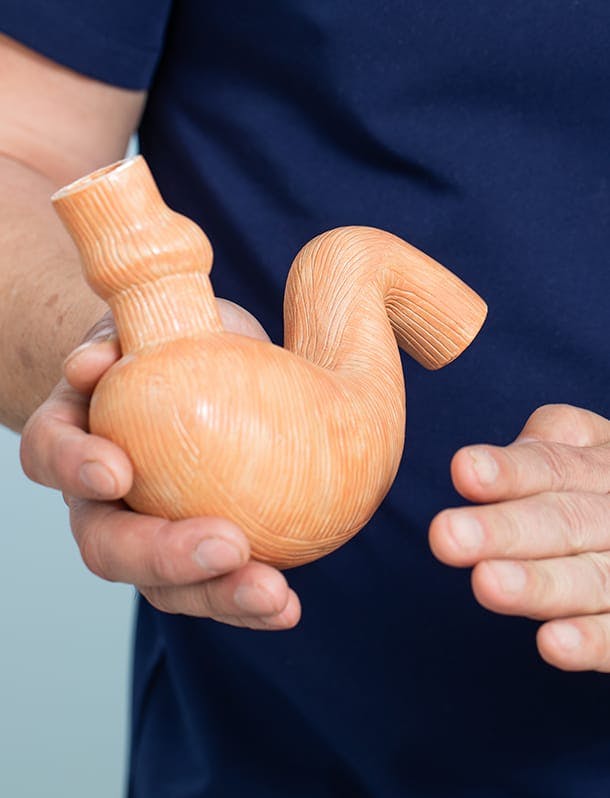
ADDITIONAL REFERENCES
- Is Gastric Sleeve Surgery Effective in the Long-Term?
- When Should Someone Consider Gastric Sleeve Revision Surgery?
- How To Prepare For Weight Loss Surgery
- The Differences Between Gastric Sleeve Surgery And Lap Band Surgery
- What To Expect After Gastric Sleeve Bariatric Surgery
- Gastric Sleeve for Diabetes Management
- The Differences Between Endoscopic Sleeve and Surgical Gastric Sleeve Procedures
- Understanding the Main Side Effects of Ozempic and Semaglutide
- Evaluating Ozempic for Long-Term Results
- Nutritional Guidelines After Bariatric Surgery
- Post-Operative Exercise Routines for Bariatric Patients
- Understanding Different Types of Bariatric Surgeries
- Ozempic vs Bariatric Surgery: Which Route to Take?
- Comparing the Improved Gastric Sleeve vs. Gastric Bypass Surgery
- Research and Innovation in Bariatric Surgery: The Evolution of the Improved Gastric Sleeve
Exclusive weight loss surgery center in Mexico
The Obesity Control Center is located just minutes across the border from San Diego in an exclusive section of Tijuana, Mexico. Our gleaming, state-of-the-art facility was designed to deliver an enhanced experience, and ensure total comfort and long-term success.
What is the OCC process?
- Reaching out – It all begins with a text message, email, phone call, or video call with one of our on-staff Personal Concierge Team members. Our Personal Concierge Team will connect you to our global community support group and address all your questions and concerns.
- Prepping for surgery/booking – Our nutritionists and Personal Concierge Team will work with you to prepare you for your surgery. Depending on your unique criteria, you may be fast-tracked for surgery in as little as 4-6 weeks.
- Travel – Upon arrival at the San Diego airport or the border crossing, you will be met by our private driver. You will be driven to either of the five-star accommodations we recommend, the Lucerna Hotel or Real Inn, to prepare for your weight loss surgery. We will provide a suggested packing list before your arrival date.
- Surgery – Our surgeons perform bariatric and metabolic surgeries using the most state-of-the-art and minimally invasive approach. Most patients are up and walking within a few hours of the surgery. Learn more about bariatric metabolic surgery by visiting pubmed.gov.
- Follow-up – You will join one of the most extensive and comprehensive follow-up programs in the world. With the help of our Personal Concierge Team, our extensive education program, and a support network of thousands of patients, you’ll become a member of the #OCCFamily for life.
Gallery
View Gallery
Start your weight loss journey today with gastric sleeve surgery in Tijuana, Mexico.
Call or email us here. One of our Personal Concierge Team members will answer all your questions and help you make the best, healthiest decision, for you. We are committed to assisting our patients to live happy, fulfilled lives.
The Obesity Control Center difference:
As medical tourism increases the need for a safe, credible, and accommodating medical center has only increased. We accept the challenge.30, 31
Here are some unique features only found at Obesity Control Center:
- 25 years specialized in the weight loss surgery field. We were some of the first surgeons to perform bariatric surgical procedures.
- Three Master Bariatric Surgeons caring for every patient. You’re always in the hands of a world-renowned and highly trained surgeon. We are the only international team of bariatric surgeons, offering globalized bariatric healthcare and the best of the best to our patients.
- We have been fully accredited by Joint Commission International for two 3-year periods, which signifies that we met the highest standards in patient safety and quality available.
- Fully accredited as an SRC Center of Excellence in Bariatric and Metabolic Surgery. Pioneers in the field of bariatric surgery, including several registered techniques, patented devices, and many “firsts” in the field like teenage obesity treatments, the IGS Improved Gastric Sleeve®, the Stomach Sparing Gastric Sleeve, the Double-Buttress Sewing Technique, and more.
- Faster recovery and better outcomes after bariatric surgery. Shorter times under anesthesia and a less-invasive abdominal wall preservation technique.
- Unique patient pre-surgery education and preparation and 5 years follow-up program – an industry first!
What we offer in our programs
Included in the cost of your gastric sleeve surgery:
- 1 night stay at our world-renowned surgical facility
- 1 night stay at a local 5-star hotel
- Luxury transportation to and from the San Diego International Airport
- Team of board-certified bariatric surgeons and anesthesiologists
- All operating room costs and surgical materials at our medical facility
- All pre-op evaluations and follow-up care
Our weight loss center is centrally located for your convenience. If you’re traveling with friends or family, consider visiting one of the popular destinations in Tijuana and San Diego near our facility.
Bariatric Surgery FAQ Videos
Schedule a Consultation Today

IGS Improved Gastric Sleeve® Pre-Surgery FAQ
What is an ideal candidate for gastric sleeve surgery?
How do I prepare for gastric sleeve surgery?
How does the pre-surgery nutritional program work?
Which is better, the gastric sleeve or gastric bypass?
Why is the gastric sleeve called “metabolic surgery”?
What is an ideal candidate for gastric sleeve surgery?
Someone who is mentally, physically, and nutritionally prepared for this life-changing bariatric surgery is an ideal candidate. If you’re overweight, have a body mass index (BMI) of 30, and are ready to lose weight, you are a candidate for sleeve gastrectomy surgery.
How do I prepare for gastric sleeve surgery?
Like in life, preparation is essential for a successful bariatric procedure outcome. Your bariatric surgeon at our Tijuana, Mexico medical facility may suggest additional requirements based on your specific case.
Rest assured that preoperative weight loss will detox your liver and result in a quicker, safer weight loss surgery. Even 5% of total body weight loss will result in a dramatic improvement in your gastric sleeve recovery.
How does the pre-surgery nutritional program work?
Nourishment at a cellular level requires you to compensate for deficiencies accumulated before and expected after weight loss surgery. Research has proven that the only way to replenish these deficiencies is through Bariatric Supplementation. A Bariatric Multivitamin and a Bariatric Protein source prior to the gastric sleeve surgery will increase your safety profile and for significant weight loss.
Mental preparation includes looking at the way we relate to certain foods. For successful weight loss surgery in Mexico that results in long-term weight loss and life-changing results, it’s important to reduce your calorie intake by consuming less food and increasing your activity level.
Which is better, the gastric sleeve or gastric bypass?
These bariatric surgeries work differently. They both have pros and cons, and you would need to discuss these two procedures with our surgeon. We prefer the least invasive bariatric procedure that offers the best results, so we always recommend a sleeve gastrectomy before gastric bypass surgery. At our medical facility in Mexico, gastric sleeve patients can always upgrade to a bypass or gastric band later if you find that it’s a better choice for your long-term weight loss goals. However, your bariatric surgeon cannot perform a sleeve gastrectomy after a bypass.
Why is the gastric sleeve called “metabolic surgery”?
In the fight against obesity, the only proven method to lose weight that outlasts ongoing diet and exercise is weight loss surgery. Recent advances prove that weight loss surgery helps many patients lose weight, it also balances the metabolism. This is the reason our weight loss surgery is often called “metabolic surgery.” How this groundbreaking surgery regulates insulin, blood sugar, cholesterol, lipids, and other health issues is not completely understood. However, it does directly impact, control, and frequently cures serious health conditions, such as high blood pressure, diabetes, and sleep apnea, with patients enjoying a radically improved quality of life.

Safety of improved gastric sleeve -- FAQ
Is gastric sleeve surgery in Mexico safe?
What is the top bariatric surgery center in Mexico?
How safe is gastric sleeve surgery?
Is gastric sleeve surgery painful?
What about gastric sleeve complications?
Why is the gastric sleeve surgery better at OCC?
What are the side effects of anesthesia?
How long will it take to get back to normal?
What is the mortality rate for gastric sleeve surgery?
Is gastric sleeve surgery in Mexico safe?
Rest assured that gastric sleeve surgery in Tijuana Mexico is perfectly safe with OCC in your corner. Our medical staff has seen over 26,000 patients travel to our medical facility with no major security incidents. Less than one mile from the U.S.A. border, our medical facility performs every bariatric procedure in the heart of the commercial district.
What is the top bariatric surgery center in Mexico?
Surgery in Tijuana, MX is now exploding with medical tourism, especially for many patients traveling abroad for weight loss surgery. At OCC, we are glad to be among the top medical facilities performing gastric sleeve in Mexico. We have four full United States-based accreditations for health and safety in sleeve gastrectomy procedures.
How safe is gastric sleeve surgery?
OCC’s complication rate is one of the lowest among bariatric procedure medical facilities in published literature. Add that to the benefits of the IGS Improved Gastric Sleeve®, and suddenly, the results are more promising than ever.
Is gastric sleeve surgery painful?
At OCC, our bariatric procedures result in a quick recovery for our actual patients. Suffering through pain and discomfort to lose weight is not our goal. Every OCC healthcare provider uses specialized pencil-thin instruments, bladeless abdominal wall trocars, and localized abdominal wall blocking agents that diminish the cascade of mediators that cause pain and inflammation.
We use half the amount of gas pressure, (10 to 12mm/hg vs. 20mm/hg), resulting in fewer dreaded “gas pressure pains” associated with laparoscopic surgery. Our relatively minimally invasive techniques take a fraction of the typical reported time thanks to our process. Less time under general anesthesia means quicker recovery after your sleeve gastrectomy weight loss surgery in Tijuana, Mexico.
What about gastric sleeve complications?
Our patented Double Buttress technique is one of the safest procedures in published literature, with a 0.0% leak rate. However, complications can happen with any surgical procedure, including staple leaks, bleeding, hernias, and chronic heartburn.
With over 26,000 bariatric surgery procedures, we have streamlined the entire weight loss surgery process. Our complication rate is significantly lower than the averages in America or Canada. Preparation is key to a successful sleeve gastrectomy outcome, and we will guide you all the way. Our complication rate is one of the lowest published in the literature.
Why is the gastric sleeve surgery better at OCC?
With the implementation of the new techniques designed at OCC, our patients are experiencing substantial and permanent weight loss without the undesirable side effect of heartburn.
What are the side effects of anesthesia?
There are symptoms after having any type of surgery that are related to anesthesia (sleepiness, dizziness, nausea, etc.), and others directly associated with the gastric sleeve itself (cramping, abdominal tenderness, or even vomiting).
How long will it take to get back to normal?
Fortunately, these are kept to a minimum and treated early so many patients are up on their feet in a couple of hours and discharged the morning after. Many of our patients feel great and are out shopping the day after gastric sleeve surgery!
What is the mortality rate for gastric sleeve surgery?
We can say proudly that the mortality rate is zero percent at our medical facility. We value a strong physician patient relationship and will never perform bariatric surgery on someone who is either not well prepared medically or has a risk higher than acceptable.

Post-Surgery FAQ
Can you have a normal life after surgery?
How long will it take to recover?
What happens if I overeat?
How much weight will I lose?
How do I achieve the best outcome?
What do you eat after gastric sleeve surgery?
Can you drink alcohol after gastric sleeve surgery?
How much can your stomach hold after gastric sleeve?
How long does it take for your stomach to heal after gastric sleeve?
How about failures and weight regain?
Why does the OCC gastric sleeve work better?
Can you have your gastric sleeve tightened?
Can you stretch your stomach after gastric sleeve?
Gastric sleeve and post-surgery rules for success
Will removing the stomach area that produces hormones make me less hungry?
How much water do I need to drink?
How do I stay hydrated after surgery?
How do you increase the amount of water you drink?
Can you have a normal life after surgery?
Most patients require several months to adapt after a sleeve gastrectomy. Our nutritionist will prescribe a nutritional regimen that is easy to follow and will allow the patient to gradually move up to the next stage. Starting with a liquid diet for a few days, including the Bariatric Protein Meals, you will slowly progress to mushy food and, finally, a normal diet.
How long will it take to recover?
Daily activities and exercise should also progress at the same rate, but many patients are surprised that they recover much quicker than they thought. In fact, energy levels are usually higher than expected when the nutrition plan includes the Bariatric Multivitamin and Bariatric Protein Shakes recommended by our team of experts.
What happens if I overeat?
The only thing you can’t do after a bariatric procedure like a sleeve gastrectomy is overeat without having severe discomfort, nausea, even vomiting. Ideally, most patients will return to eating a normal amount of food, like three normal meals a day and three snacks between meals.
How much weight will I lose?
Gastric sleeve surgery can produce a substantial amount of weight loss in a relatively short period of time. A 65% EWL (excess weight loss) at 18 months is reported in general in the literature. For example, a patient that needs to lose 100 pounds (100 lbs. excess weight) will lose at least 65 pounds.
How do I achieve the best outcome?
Other factors influencing total weight loss include the preparation of the patient before bariatric surgery. Preparation not only includes mental and physical preparation, but nutritional preparation as well. Pre-operative preparations include supplementation and protein intake.
At OCC, you will see that all patients undergo pre-surgery preparation and are followed for 5 years after the procedure. OCC Wellness is an online program that helps you achieve your goals.
What do you eat after gastric sleeve surgery?
It starts with liquids during the first days, gradually progressing to mushy food, moving on to semi-solid foods, and finally, to full solids. All this happens during the first couple of months. The good news is massive weight loss occurs during this time and all the health indicators dramatically get better during this period.
Can you drink alcohol after gastric sleeve surgery?
Like any weight loss surgery, there is a recovery time, and our nutrition team recommends not drinking alcoholic beverages for the first four months after your procedure.
How much can your stomach hold after gastric sleeve?
Gastric sleeve surgery patients will notice, once they are past the liquid phase and eating full solids, that the restriction level will result in around a third of the original meal volume. Eating a third of your typical meal triggers sustained weight loss and improved overall health.
How long does it take for your stomach to heal after gastric sleeve?
Recent studies show that the inner lining of the stomach can start healing in as little as 6 hours! It is important to follow all the guidelines that we teach our patients prior to bariatric surgery to ensure recovery is uneventful and you will enjoy a good outcome.
How about failures and weight regain?
Our advanced OCC surgeons use the double-buttress technique that prevents leaks, pouch enlargement, and failure. In this procedure, a thin vertical sleeve of the stomach (approximately eight inches long) is created using a stapling device, and the rest of the stomach is removed. Food passes through the digestive tract as usual and is fully absorbed into the body.
Why does the OCC gastric sleeve work better?
It is common in any type of weight loss surgery to regain weight. The trick is to perform a bariatric surgery that limits the amount of weight that can be regained. At OCC, our gastric sleeve surgeries are performed to be safe and effective, and preferably a permanent weight loss solution. Weight loss has to do with a structured bariatric program, it’s not just another gastric sleeve surgery!
Can you have your gastric sleeve tightened?
Yes, thankfully! This is what we have named “Sleeve Rescue.” OCC is considered one of the top facilities for gastric sleeve revision and tightening surgery (re-doing the surgery) and is frequently asked to treat patients that have regained weight or have heartburn symptoms after sleeve surgery. In fact, many of the popular, cheaper centers are a constant flow of patients that have what we call “sloppy sleeves” that fail over time.
Can you stretch your stomach after gastric sleeve?
Yes, sleeves will stretch over time, and they will fail. We developed the “Double-Buttress” technique to oversew and reinforce the staple line to create a safer, more durable double-sealed gastric sleeve.
Gastric sleeve, Lap-band or Gastric Plication procedures have the common purpose of a restrictive “pouch,” meaning the stomach´s limited food capacity. Under some situations, the pouch can be stretched to the point where there is less restriction.
Gastric sleeve and post-surgery rules for success
- Do not combine solids with liquids. This increases the pouch volume. Drink liquids 5 min before a meal and resume drinking 45 min later.
- Avoid drinking carbonated drinks like sodas, mineral water, champagne, beer. Any “bubbles” will add air, therefore volume to the pouch.
- Do not force liquids. Sipping throughout the day is the best way to stay hydrated. After bariatric surgery, you´ll need to drink 1oz every 15 minutes. After a week you can slowly increase the amount you can drink. Once healed, ½ cup is likely what you´ll be able to tolerate.
- Avoid forcing the feed. At the early stages before bariatric surgery, most patients feel full with 2-3 tablespoons. The pouch will slowly adapt to its final size about 7 months post-surgery, when most patients will be able to eat about ½ cup of food. You should only eat what you can tolerate and stop eating once you feel satisfied, not full. If you feel discomfort, or have P-Bing, you are eating too much.
- Do not use a straw. You´ll pull air into your pouch. Same thing happens if you chew with your mouth open (gum, or food).
- Avoid junk food. Some patients eat junk food and then food, doing so easily doubles the portions.
Will removing the stomach area that produces hormones make me less hungry?
Unfortunately, the latest research has non-conclusive evidence. A gastric sleeve will reduce the size of the organ and the part of the stomach responsible for predominantly producing the Ghrelin hormone, also referred to as “the hunger hormone.” When the bariatric surgery is performed, this hormone tends to decrease weeks after the procedure.
Medical studies have also seen this pattern in patients undergoing gastric bypass surgery and gastric plication (the stomach sparing version of the gastric sleeve). In these cases, no stomach tissue is removed, but the same hormonal effect has been observed.
How much water do I need to drink?
All patients are reminded to keep hydrated before and after their bariatric surgery, but it’s important to advise how much and when to intake those liquids.
After bariatric surgery patients will have a very dry mouth. However, it doesn’t mean that they should guzzle water. Instead, we give patients liquids in 2 forms: ice cubes and small (8 oz) water bottles.
How do I stay hydrated after surgery?
The ice cubes are an excellent way to keep patients hydrated and to rationalize the amount of water intake. By giving a patient an ice cube, and just letting it melt in his or her mouth, it’s a very small but very important amount of water that the patient drinks. If a patient consumes too much liquid too fast, their stomach may become inflamed in the first few hours, leading to extreme discomfort and vomiting.
How do you increase the amount of water you drink?
After tolerating ice cubes, patients can move to small water bottles. We will instruct patients on the amount of water to be taken with each sip of the bottle. By teaching about the correct amount of water intake, we can prevent most problems with inflammation that can lead to a difficult recovery process, more medication, and a prolonged hospital stay.
In a world where the mentality of “more is better,” patients after a gastric sleeve surgery in Mexico benefit from the idea of “slower is faster” as in slower intake equals faster recovery.
Schedule your IGS Improved Gastric Sleeve® surgery in Mexico today
Call or email us to start your weight loss journey. Call one of our Personal Concierge Team members and learn how you can get the life you’ve always wanted with the help of the top weight loss service, Obesity Control Center in Tijuana, Mexico.
References
See how OCC compares to other facilities in terms of surgical rates, infection rates, mortality rates, and more.

